#Sara Mankiewicz
Text
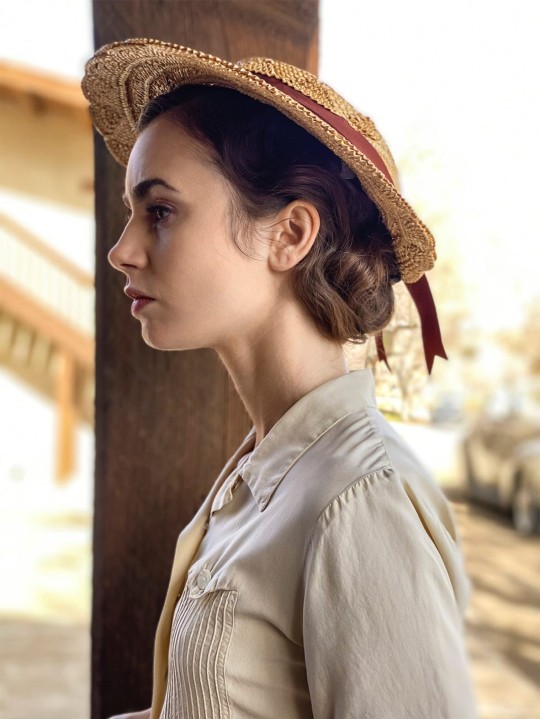
Mank (2020)
#2020#film#movie#film noir#Mank#David Fincher#Lily Collins#Rita Alexander#Gary Oldman#Herman Mankiewicz#Amanda Seyfried#Marion Davies#Charles Dance#William Randolph Hearst#Arliss Howard#Louis B. Mayer#Tuppence Middleton#Sara Mankiewicz#Tom Burke#Orson Welles#Citizen Kane#North Verde Ranch#Victorville#Hollywood#San Simeon#California
10 notes
·
View notes
Photo


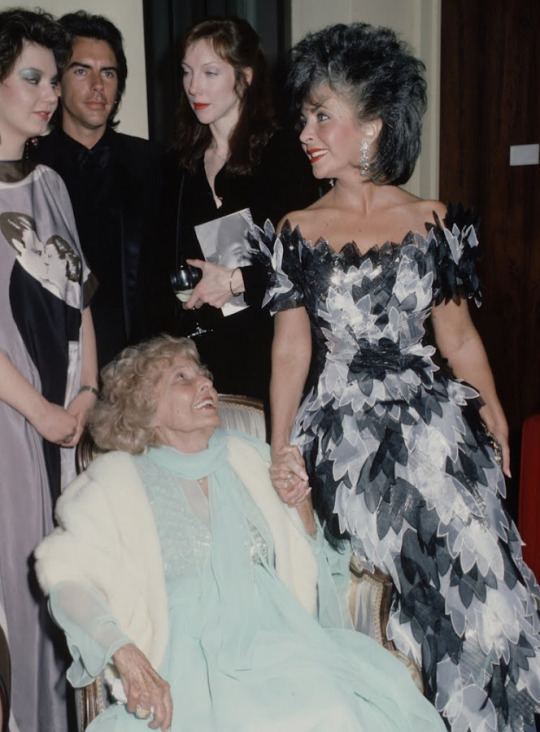
Andy Warhol, Elizabeth Taylor, Sara Sothern, Margaret O'Brien, Roddy McDowall, Maureen Stapleton, Joseph Mankiewicz at the Film Society of Lincoln Center Tribute to Elizabeth Taylor in New York City on May 5, 1986
#andy warhol#elizabeth taylor#sara sothern#margaret o'brien#roddy mcdowall#maureen stapleton#joseph mankiewicz#1986#1980s#actress#pop culture
109 notes
·
View notes
Photo

2 years ago I decided I should watch at least two movies I’d never seen before a week. That year I managed 278 films. This year I have 346 first-watch-films, and so many more still to see. These are ones that stood out, in no particular order other than the order in which I saw them. Movies are magic, history and humanity, and how lucky are we to have them.
2022 FIRST WATCHES – STANDOUTS
January
Career Girls (dir. Mike Leigh, 1997), 4 January
Titane (dir. Julia Ducournau, 2021), 8 January at Prince Charles Cinema
La Chienne (dir. Jean Renoir, 1931), 18 January
Panique (dir. Julien Duvivier, 1946), 20 January
Undine (dir. Christian Petzold, 2020), 21 January
An Angel at my Table (dir. Jane Campion, 1990), 23 January
Drive My Car (dir. Ryusuke Hamaguchi, 2021), 29 January at Prince Charles Cinema
February
Parallel Mothers (dir. Pedro Almodóvar, 2021), 7 February at Rich Mix
Life is Sweet (dir. Mike Leigh, 1990), 18 February
March
Accattone (dir. Pier Paolo Pasolini, 1961), 5 March
In the Cut (dir. Jane Campion, 2003), 6 March
Phoenix (dir. Christian Petzold, 2014), 10 March
Outer Space (dir. Peter Tscherkassky, 1999), 16 March
Cleopatra (dir. Joseph L. Mankiewicz, 1963), 20 March
Inside (dir. Bo Burnham, 2020), 31 March
April
Scenes with Beans (dir. Ottó Foky, 1975), 5 April
High and Low (dir. Akira Kurosawa, 1963), 9 April
Una Mujer Fantastica (dir. Sebastian Leilo, 2017), 13 April
Women on the Verge of a Nervous Breakdown (dir. Pedro Almodóvar, 1988), 19 April
May
Chungking Express (dir. Wong Kar Wai, 1994), 2 May
Zazie dans le metro (dir. Louis Malle, 1960), 5 May
Three Colours: Blue (dir. Krzysztov Kieślowski, 1993), 11 May
La 317e Section (dir. Pierre Schoendoerffer, 1965), 28 May at Christine 21
La Collectionneuse (dir. Eric Rohmer, 1967), 30 May
June
Remorques (dir. Jean Grémillon, 1941), 1 June
Orphée (dir. Jean Cocteau, 1950), 17 June
Les plages d’Agnès (dir. Agnès Varda, 2008), 20 June
La belle et la bête (dir. Jean Cocteau, 1946), 21 June
Moonage Daydream (dir. Brett Morgen, 2022), 25 June at Showroom, Sheffield
July
Endless Summer (dir. Bruce Brown, 1966), 2 July
L’une chante, l’autre pas (dir. Agnès Varda, 1977), 12 July
Junior (dir. Julia Ducournau, 2011), 17 July
The Big City (dir. Satyajit Ray, 1963), 23 July at BFI Southbank
Andrei Rublev (dir. Andrei Tarkovsky, 1966), 24 July at Prince Charles Cinema 35mm
Flee (dir. Jonas Poher Rasmussen, 2021), 24 July
Salò, or the 120 Days of Sodom (dir. Pier Paolo Pasolini, 1975), 30 July at Prince Charles Cinema 35mm
August
Blood and Black Lace (dir. Mario Bava, 1964), 4 August
Happening (dir. Audrey Diwan, 2021), 9 August
Nope (dir. Jordan Peele, 2022), 15 August at Castle Cinema, 29 August at Vue Islington
Brute Force (dir. Jules Dassin, 1947), 16 August
Naked City (dir. Jules Dassin, 1948), 30 August
September
Gaslight (dir. George Cukor, 1944), 1 September
The Red Balloon (dir. Albert Lamorisse, 1956), 5 September
A Valparaíso (dir. Joris Ivens, 1963), 8 September
Raw Deal (dir. Anthony Mann, 1948), 10 September
Little Dieter Needs to Fly (dir. Werner Herzog, 1997), 25 September
October
The Killers (dir. Robert Siodmak, 1946), 8 October
Foolish Wives (dir. Erich von Stroheim, 1922), 9 October at BFI Southbank (London Film Festival)
One Fine Morning (dir. Mia Hansen Løve, 2022) at Odeon Luxe West End (London Film Festival), 14 October
Orlando (dir. Sally Potter, 1992), 19 October
7 Days in May (dir. John Schlesinger, 1964), 22 October
Seconds (dir. John Schlesinger, 1966), 28 October
November
The Rider (dir. Chloe Zhao, 2017), 1 November
Los Huesos (dir. Cristóbal León, Joaquin Cociña, 2021), 10 November
Fire of Love (dir. Sara Dosa, 2022), 13 November
Aftersun (dir. Charlotte Wells, 2022) 19 November at Castle Cinema
The Draughtsman’s Contract (dir. Peter Greenaway, 1982) 26 November at BFI Southbank
December
Sullivan’s Travels (dir. Preston Sturges, 1941), 3 December
Victim (dir. Basil Dearden, 1961), 8 December
Le Pupille (dir. Alice Rohrwacher, 2022), 16 December
The Queen of Spades (dir. Thorold Dickinson, 1949) at BFI Southbank, 30 December
Honourable mentions
Barry Lyndon (dir. Stanley Kubrick, 1975) at la Filmotheque du Quartier Latin, 8 May. I don’t like Kubrick but I think I liked this. Titane at the Cinematheque Francaise in Paris with Ducournau Q&A, 16 May. Top Gun Maverick at the Vue Leicester Square, 6 June, with my best friends. Jane (2017) at Sheffield DocFest, introduced by Brett Morgen. I had literally had 10 minutes sleep the night before. 26 June at Showroom, Sheffield
Moonage Daydream at BFI IMAX, while the Queue was ongoing. 17 September. Mrs Harris Goes to Paris (Anthony Fabian, 2022) at 11am on a Sunday at the Vue Islington. 29 October. Glass Onion (Rian Johnson, 2022) at the Rio Cinema in Dalston on a very uncomfortable date. 25 November
And rewatching The Third Man (Carol Reed, 1949) for the first time since I wrote my dissertation on it, six years ago.
15 notes
·
View notes
Photo


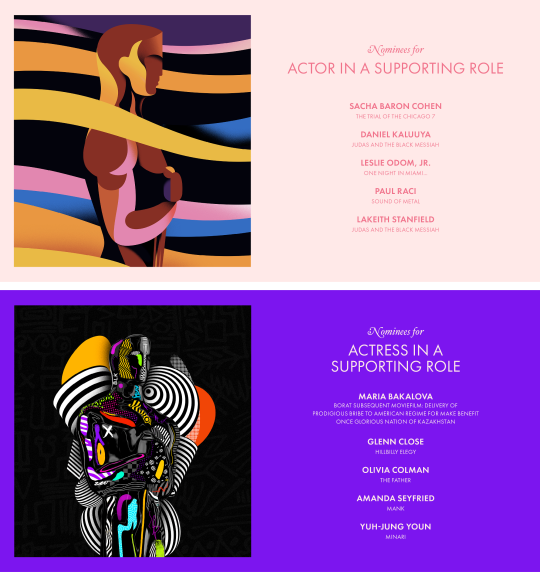
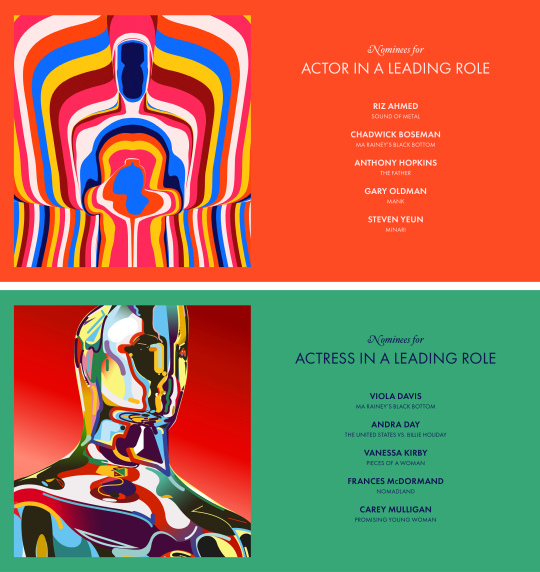

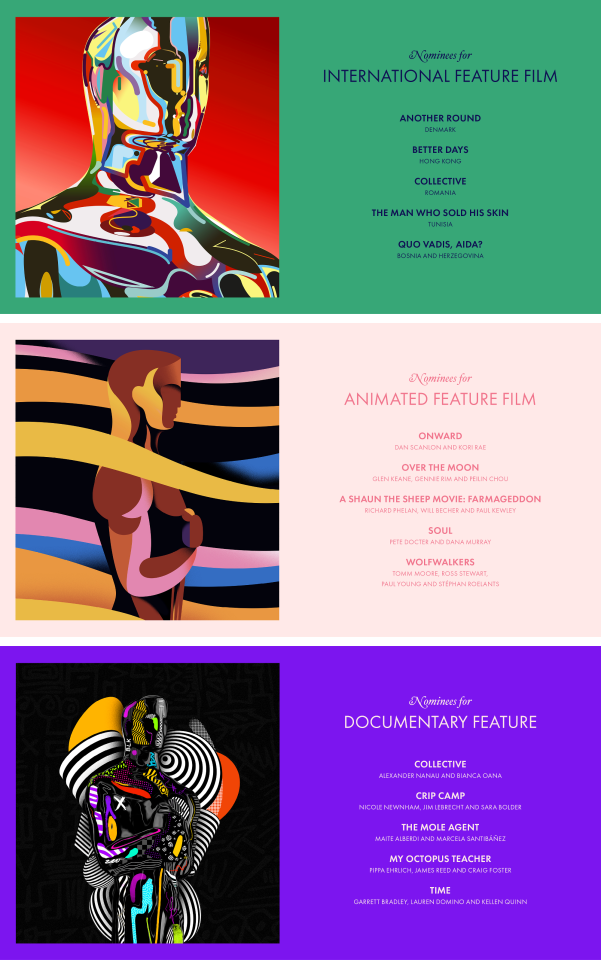




93rd Academy Awards Nominees
BEST PICTURE
The Father – David Parfitt, Jean-Louis Livi, and Philippe Carcassonne
Judas and the Black Messiah – Shaka King, Charles D. King, and Ryan Coogler
Mank – Ceán Chaffin, Eric Roth, and Douglas Urbanski
Minari – Christina Oh
Nomadland – Frances McDormand, Peter Spears, Mollye Asher, Dan Javey, and Chloé Zhao
Promising Young Woman – Ben Browning, Ashley Fox, Emerald Fennell, and Josey McNamara
Sound of Metal – Bert Hamelinick and Sacha Ben Harroche
The Trial of the Chicago 7 – Marc Platt and Stuart Besser
BEST DIRECTOR
Lee Isaac Chung – Minari
Emerald Fennell – Promising Young Woman
David Fincher – Mank
Thomas Vinterberg – Another Round
Chloé Zhao – Nomadland
BEST ACTOR
Riz Ahmed – Sound of Metal as Ruben Stone
Chadwick Boseman (posthumous nominee) – Ma Rainey's Black Bottom as Levee Green
Anthony Hopkins – The Father as Anthony
Gary Oldman – Mank as Herman J. Mankiewicz
Steven Yeun – Minari as Jacob Yi
BEST ACTRESS
Viola Davis – Ma Rainey's Black Bottom as Ma Rainey
Andra Day – The United States vs. Billie Holiday as Billie Holiday
Vanessa Kirby – Pieces of a Woman as Martha Weiss
Frances McDormand – Nomadland as Fern
Carey Mulligan – Promising Young Woman as Cassandra “Cassie” Thomas
BEST SUPPORTING ACTOR
Sacha Baron Cohen – The Trial of the Chicago 7 as Abbie Hoffman
Daniel Kaluuya – Judas and the Black Messiah as Fred Hampton
Leslie Odom Jr. – One Night in Miami... as Sam Cooke
Paul Raci – Sound of Metal as Joe
Lakeith Stanfield – Judas and the Black Messiah as William "Bill" O'Neal
BEST SUPPORTING ACTRESS
Maria Bakalova – Borat Subsequent Moviefilm: Delivery of Prodigious Bribe to American Regime for Make Benefit Once Glorious Nation of Kazakhstan as Tutar Sagdiyev
Glenn Close – Hillbilly Elegy as Bonnie "Mamaw" Vance
Olivia Colman – The Father as Anne
Amanda Seyfried – Mank as Marion Davies
Youn Yuh-jung – Minari as Soon-ja
BEST ORIGINAL SCREENPLAY
Judas and the Black Messiah – Screenplay by Will Berson and Shaka King; Story by Will Berson, Shaka King, Keith Lucas, and Kenny Lucas
Minari – Lee Isaac Chung
Promising Young Woman – Emerald Fennell
Sound of Metal – Screenplay by Darius Marder and Abraham Marder; Story by Darius Marder and Derek Cianfrance
The Trial of the Chicago 7 – Aaron Sorkin
BEST ADAPTED SCREENPLAY
Borat Subsequent Moviefilm: Delivery of Prodigious Bribe to American Regime for Make Benefit Once Glorious Nation of Kazakhstan – Screenplay by Sacha Baron Cohen, Anthony Hines, Dan Swimer, Peter Baynham, Erica Rivinoja, Dan Mazer, Jena Friedman, and Lee Kern; Story by Baron Cohen, Hines, Swimer, and Nina Pedrad; Based on the character Borat Sagdiyev by Baron Cohen
The Father – Christopher Hampton & Florian Zeller, based on the play by Zeller
Nomadland – Chloé Zhao, based on the book by Jessica Bruder
One Night in Miami... – Kemp Powers, based on his play
The White Tiger – Ramin Bahrani, based on the novel by Aravind Adiga
BEST INTERNATIONAL FEATURE FILM
Another Round (Denmark) in Danish – directed by Thomas Vinterberg
Better Days (Hong Kong) in Mandarin – directed by Derek Tsang
Collective (Romania) in Romanian – directed by Alexander Nanau
The Man Who Sold His Skin (Tunisia) in Arabic – directed by Kaouther Ben Hania
Quo Vadis, Aida? (Bosnia and Herzegovina) in Bosnian – directed by Jasmila Žbanić
BEST ANIMATED FEATURE FILM
Onward – Dan Scanlon and Kori Rae
Over the Moon – Glen Keane, Gennie Rin, and Peilin Chou
A Shaun the Sheep Movie: Farmageddon – Richard Phelan, Will Becher, and Paul Kewley
Soul – Pete Docter and Dana Murray
Wolfwalkers – Tomm Moore, Ross Stewart, Paul Young, and Stéphan Roelants
BEST DOCUMENTARY FEATURE
Collective – Alexander Nanau and Bianca Oana
Crip Camp – Nicole Newnham, Jim LeBrecht and Sara Bolder
The Mole Agent – Maite Alberdi and Marcela Santibáñez
My Octopus Teacher – Pippa Ehrlich, James Reed, and Craig Foster
Time – Garrett Bradley, Lauren Domino, and Kellen Quinn
BEST CINEMATOGRAPHY
Judas and the Black Messiah – Sean Bobbitt
Mank – Erik Messerschmidt
News of the World – Dariusz Wolski
Nomadland – Joshua James Richards
The Trial of the Chicago 7 – Phedon Papamichael
BEST FILM EDITING
The Father – Yorgos Lamprinos
Nomadland – Chloé Zhao
Promising Young Woman – Frédéric Thoraval
Sound of Metal – Mikkel E.G. Nielsen
The Trial of the Chicago 7 – Alan Baumgarten
BEST PRODUCTION DESIGN
The Father – Production Design: Peter Francis; Set Decoration: Cathy Featherstone
Ma Rainey's Black Bottom – Production Design: Mark Ricker; Set Decoration: Karen O'Hara and Diana Sroughton
Mank – Production Design: Donald Graham Burt; Set Decoration: Jan Pascale
News of the World – Production Design: David Crank; Set Decoration: Elizabeth Keenan
Tenet – Production Design: Nathan Crowley; Set Decoration: Kathy Lucas
BEST COSTUME DESIGN
Emma – Alexandra Byrne
Ma Rainey’s Black Bottom – Ann Roth
Mank – Trish Summerville
Mulan – Bina Daigeler
Pinocchio – Massimo Cantini Parrini
BEST MAKEUP AND HAIRSTYLING
Emma – Marese Langan, Laura Allen, and Claudia Stolze
Hillbilly Elegy – Eryn Krueger Mekash, Patricia Dehaney, and Matthew Mungle
Ma Rainey's Black Bottom – Matiki Anoff, Mia Neal, and Larry M. Cherry
Mank – Kimberley Spiteri, Gigi Williams
Pinocchio – Dalia Colli, Mark Coulier, and Francesco Pegoretti
BEST VISUAL EFFECTS
Love and Monsters – Matt Sloan, Genevieve Camailleri, Matt Everitt, and Brian Cox
The Midnight Sky – Matthew Kasmir, Christopher Lawren, Max Solomon, and David Watkins
Mulan – Sean Faden, Anders Langlands, Seth Maury, and Steven Ingram
The One and Only Ivan – Nick Davis, Greg Fisher, Ben Jones, and Santiago Colomo Martinez
Tenet – Andrew Jackson, David Lee, Andrew Lockley and
BEST ORIGINAL SCORE
Da 5 Bloods – Terence Blanchard
Mank – Trent Reznor and Atticus Ross
Minari – Emile Mosseri
News of the World – James Newton Howard
Soul – Trent Reznor, Atticus Ross, and Jon Batiste
BEST ORIGINAL SONG
"Fight for You" from Judas and the Black Messiah – Music by H.E.R. and Dernst Emile II; Lyric by H.E.R. and Tiara Thomas
"Hear My Voice" from The Trial of the Chicago 7 – Music by Daniel Pemberton; Lyric by Daniel Pemberton and Celeste Waite
"Husavik" from Eurovision Song Contest: The Story of Fire Saga – Music and Lyric by Savan Kotecha, Fat Max Gsus, and Rickard Göransson
"Io Sì (Seen)" from The Life Ahead – Music by Diane Warren; Lyric by Diane Warren and Laura Pausini
"Speak Now" from One Night in Miami... – Music and Lyric by Leslie Odom Jr. and Sam Ashworth
BEST SOUND
Greyhound – Warren Shaw, Michael Minkler, Beau Borders, and David Wyman
Mank – Ren Klyce, Jeremy Molod, David Parker, Nathan Nance, and Drew Kunin
News of the World – Oliver Tarney, Mike Prestwood Smith, William Miller, and John Pritchett
Soul – Ren Klyce, Coya Elliot, and David Parker
Sound of Metal – Nicolas Becker, Jaime Baksht, Michelle Couttolenc, Carlos Cortes, and Philip Bladh
BEST LIVE ACTION SHORT FILM
Feeling Through – Doug Roland and Susan Ruzenski
The Letter Room – Elvira Lind and Sofia Sondervan
The Present – Farah Nabulsi
Two Distant Strangers – Travon Free and Martin Desmond Roe
White Eye – Tomer Shushan and Shira Hochman
BEST ANIMATED SHORT FILM
Burrow – Madeline Sharafian and Michael Capbarat
Genius Loci – Adrien Mérigeau and Amaury Ovise
If Anything Happens I Love You – Will McCormack and Michael Govier
Opera – Eric Oh
Yes-People – Gísli Darri Halldórsson and Arnar Gunnarsson
BEST DOCUMENTARY SHORT SUBJECT
Colette – Anthony Giacchino and Alice Doyard
A Concerto Is a Conversation – Ben Proudfoot and Kris Bowers
Do Not Split – Anders Hammer and Charlotte Cook
Hunger Ward – Skye Fitzgerald and Michael Shueuerman
A Love Song for Latasha – Sophia Nahali Allison and Janice Duncan
#93rd Academy Awards#Academy Awards#Oscars#The Father#Judas and the Black Messiah#Mank#Minari#Nomadland#Promising Young Woman#Sound of Metal#The Trial of the Chicago 7#Lee Isaac Chung#Emerald Fennell#David Fincher#Thomas Vinterberg#Chloé Zhao#Riz Ahmed#Chadwick Boseman#Anthony Hopkins#Gary oldman#Steven Yeun#Viola Davis#Andra Day#Vanessa Kirby#Frances McDormand#Carey Mulligan#Sacha Baron Cohen#Daniel Kaluuya#Leslie Odom Jr#Paul Raci
215 notes
·
View notes
Text
My Favorite Films and Performances of 2020
“I wish I could’ve seen it on the big screen.”
It was a strange year, and even stranger year of movie watching. In 2020 I saw only one of my top films in a theater, which is crazy (like much else over these past months). But the experience of keeping up with the movies this year was a reminder that great filmmaking can transcend the specifics of the viewing experience. In your living room, in bed, projected onto the side of a garage, streaming on Twitch, broken up into multiple sittings, maybe even on your phone (desperate times)… if doesn’t matter as long as it connects with you. A great film has the power to soothe and transport, to alter your perspective, to re-wire your brain. So while I didn’t get on a single airplane last year, I definitely went places. And I’m grateful for these changes of scenery. For the time-travel as well; last year in my house, we found great comfort in revisiting a bunch of old favorites. It was also an opportunity to finally watch a number of those older films that had someone evaded us… a year of catching up, now or never. We were members of a weekly movie club for some months — that was cool. Another pleasant silver lining was the emergence of virtual film festivals, which have been a fantastic opportunity. I hope that they can continue in some form when this pandemic is in the rearview. Because, you know, getting to Park City is a real schlep. All this to say: like you, I’ll always remember 2020. In this truly crummy year, the movies really helped.
I’m including some of the film festival stuff that’s coming out a little later, because the boundaries between 2020 films and 2021 films feels blurry to me without proper theatrical releases.
TOP 5, loosely ranked. I love these deeply.
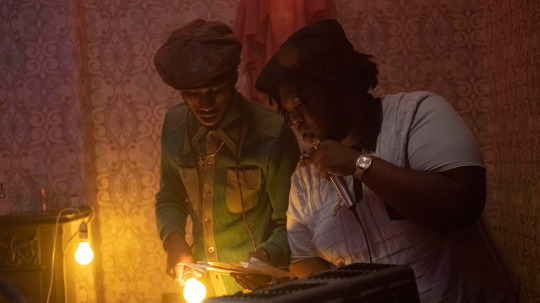
1. LOVERS ROCK, Steve McQueen
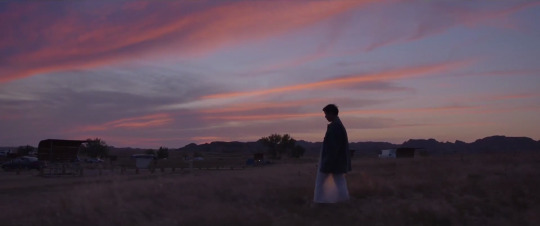
2. NOMADLAND, Chloe Zhao

3. ANOTHER ROUND, Thomas Vinterberg
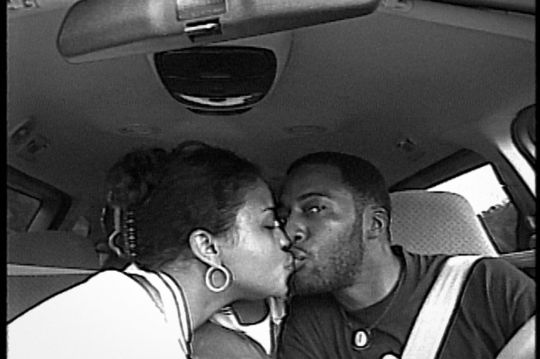
4. TIME, Garrett Bradley
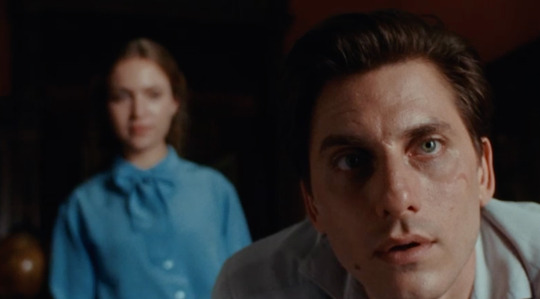
5. MARTIN EDEN, Pietro Marcello
--------------------
The rest of the Top 25, in alphabetical order. I loved these.
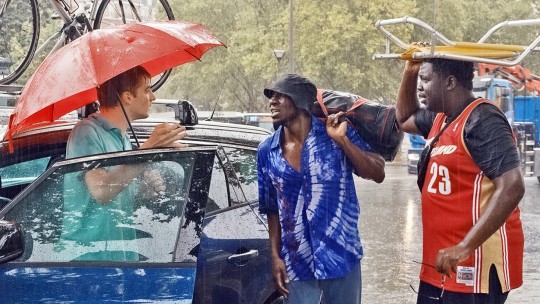
À L’ABORDAGE, Guillaume Brac
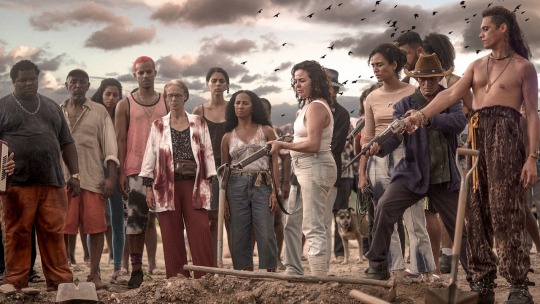
BACURAU, Kleber Mendonça Filho
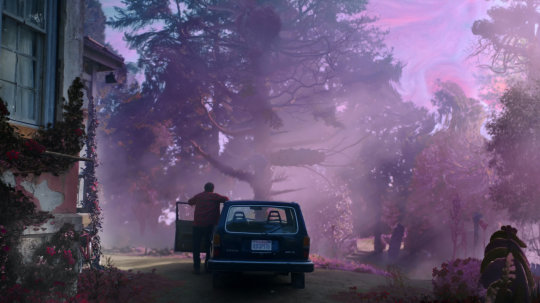
COLOR OUT OF SPACE, Richard Stanley
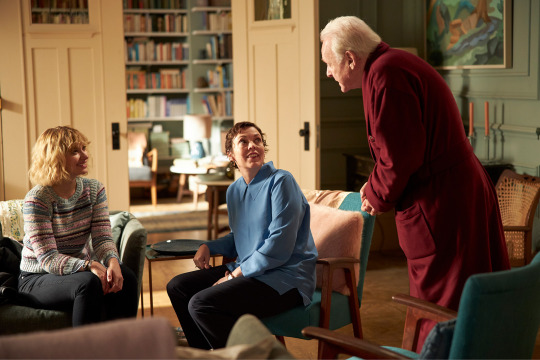
THE FATHER, Florian Zeller
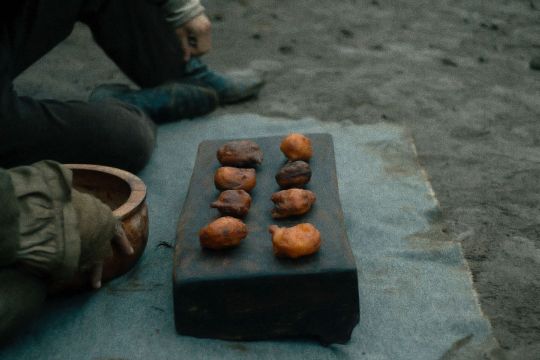
FIRST COW, Kelly Reichardt
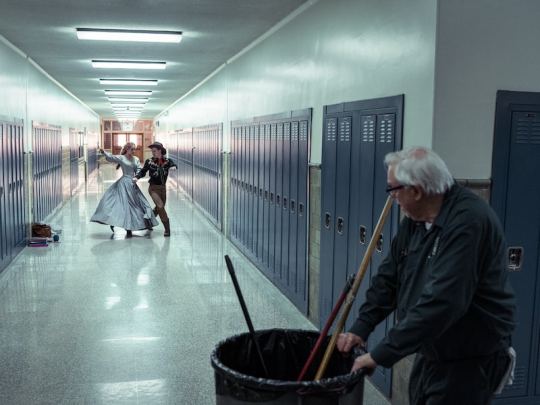
I’M THINKING OF ENDING THINGS, Charlie Kaufman

JASPER MALL, Bradford Thomason and Brett Whitcomb
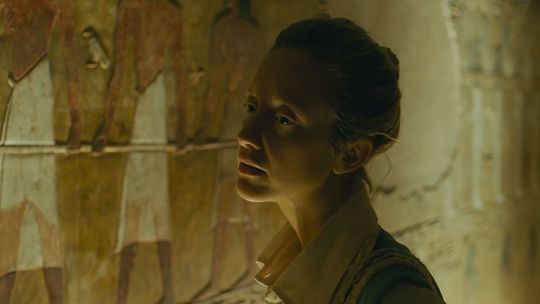
LUXOR, Zeina Durra
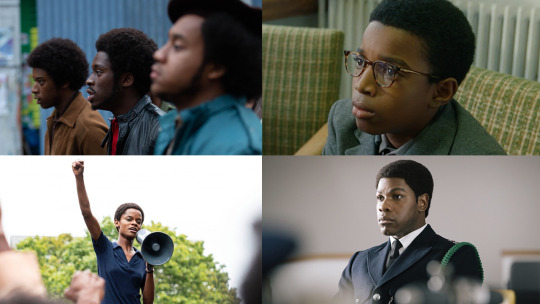
ALEX WHEATLE / EDUCATION / MANGROVE / RED, WHITE AND BLUE, Steve McQueen
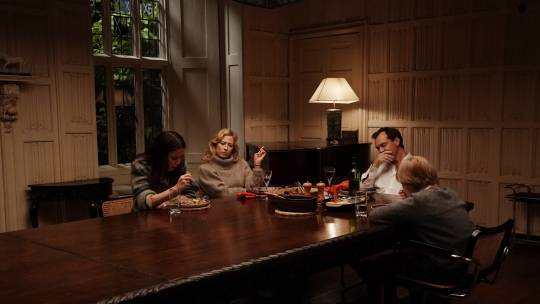
THE NEST, Sean Durkin
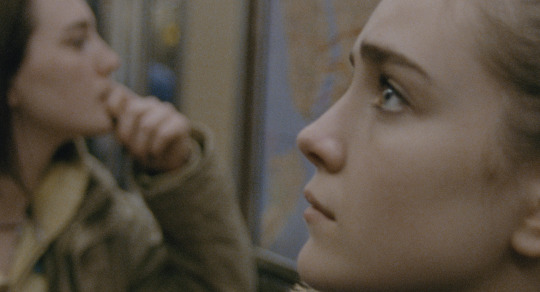
NEVER RARELY SOMETIMES ALWAYS, Eliza Hittman
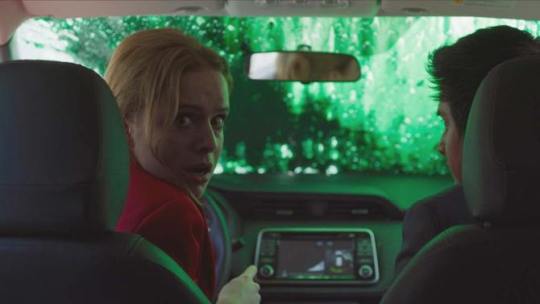
NEW ORDER, Michel Franco
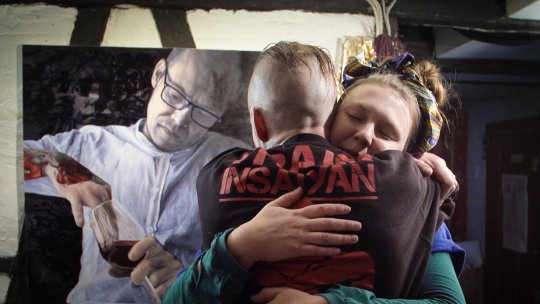
THE PAINTER & THE THIEF, Benjamin Ree
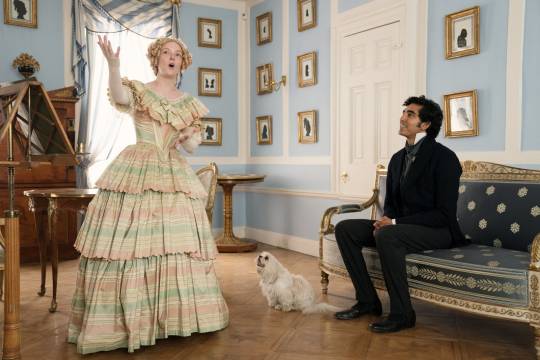
THE PERSONAL HISTORY OF DAVID COPPERFIELD, Armando Iannucci
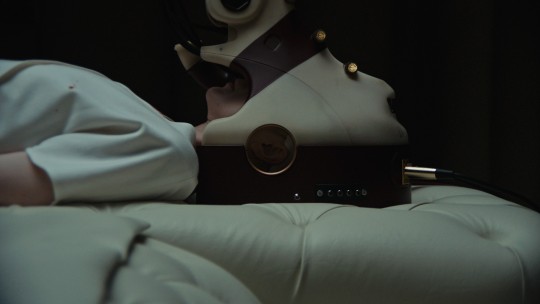
POSSESSOR, Brandon Cronenberg

PROMISING YOUNG WOMAN, Emerald Fennell
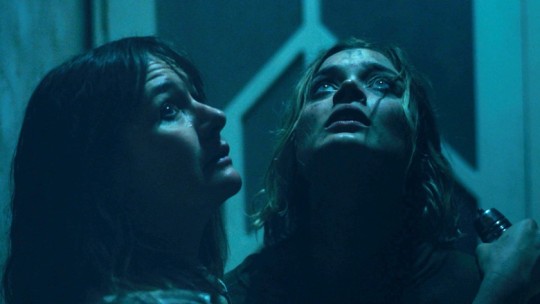
RELIC, Natalie Erika James

SAINT FRANCES, Alex Thompson
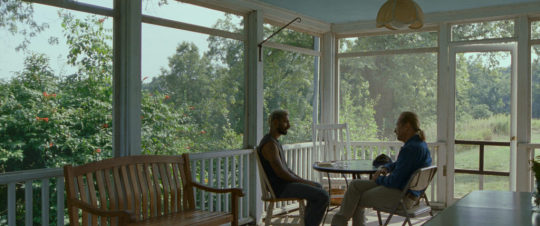
SOUND OF METAL, Darius Marder
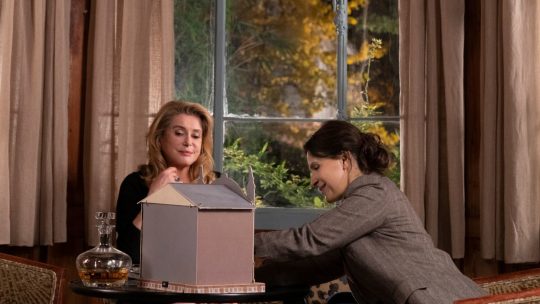
THE TRUTH, Hirokazu Koreeda
--------------------
I also enjoyed (some more than others):
Apples, The Assistant, Babyteeth, Bad Education, Black Bear, Blow the Man Down, Borat Subsequent Moviefilm, Butt Boy, The Climb, Da 5 Bloods, Deerskin, Emma, The Father (Bulgaria), Greed, His House, The Hunt, I Used to Go Here, I'm No Longer Here, Impetigore, The Intruder, The Invisible Man, Kajillionaire, La Llorona, Let Them All Talk, Lost Girls, The Man Who Sold His Skin, Mank, Never Gonna Snow Again, News of the World, One Night in Miami, Palm Springs, Preparations to Be Together for an Unknown Period of Time, Rebecca, She Dies Tomorrow, Shirley, Slow Machine, Sorry We Missed You, Soul, Spree, Straight Up, A Sun, Swallow, Tenet, Tesla, Tommaso, The Traitor, The Trip to Greece, True History of the Kelly Gang, Uncle Frank, Under the Open Sky, The Vast of Night, Vitalina Varela, Wendy, The Whistlers, Wildland, Young Ahmed
--------------------
And these documentaries!
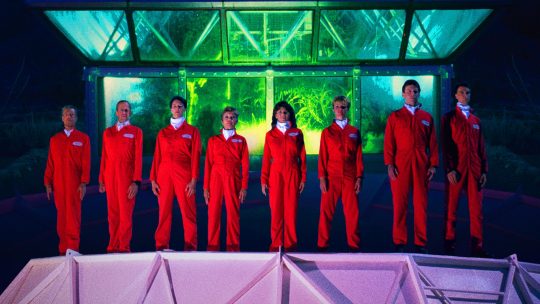
American Murder: The Family Next Door, The American Sector, Assassins, Beastie Boys Story, The Bee Gees: How Can You Mend a Broken Heart, Bloody Nose Empty Pockets, Boys State, Brainiac: Transmissions After Zero, Circus of Books, Class Action Park, Collective, Crip Camp, David Byrne's American Utopia, Dick Johnson is Dead, Fireball: Visitors From Darker Worlds, The Go-Go's, Gunda, Miss Americana, MLK/FBI, The Mole Agent, Mucho Mucho Amor: The Legend of Walter Mercado, My Psychedelic Love Story, Mystify: Michael Hutchence, Narrowsburg, On the Record, Other Music, Sisters with Transistors, Spaceship Earth, The Way I See It, Whirlybird
--------------------
And these shorts:

Bye Bye Body (which I edited), Fit Model, Friday Night Pizza for Daddy, Hard Cracked the Wind, The Human Voice, John Was Trying to Contact Aliens, Michael's Preference West, What Did Jack Do?, World of Tomorrow Episode Three: The Absent Destinations of David Prime
--------------------
My favorite performance of the year:
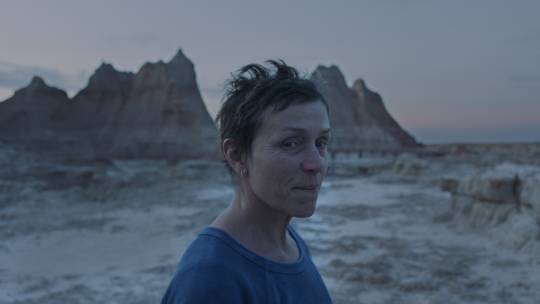
Frances McDormand as Fern in Nomadland
--------------------
Favorite ensembles:
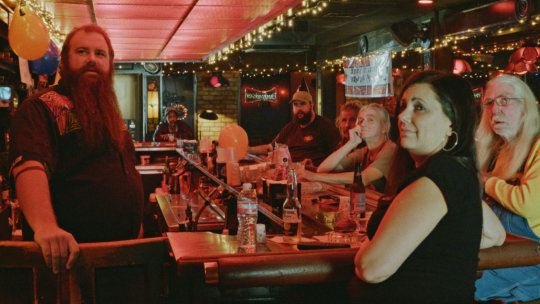
À l’abordage, Another Round, Bad Education, Babyteeth, Bloody Nose Empty Pockets, Blow the Man Down, Emma, First Cow, Kajillionaire, Let Them All Talk, Lovers Rock, Mangrove, Mank, One Night in Miami, The Personal History of David Copperfield, Promising Young Woman, True History of the Kelly Gang
--------------------
More memorable (and in some cases under-discussed) performances:
Christopher Abbott as Colin Tate in Possessor and as Gabe in Black Bear
Idir Ben Addi as Ahmed in Young Ahmed
Riz Ahmed as Ruben Stone in Sound of Metal
Daniel Algrant as Kelvin Kranz in Let Them All Talk
Maria Bakalova as Tutar Sagdiyev in Borat Subsequent Moviefilm
Haley Bennett as Hunter Conrad in Swallow
John Boyega as Leroy Logan in Red, White and Blue
Rob Brydon as Rob Brydon in The Trip to Greece
Jessie Buckley as Young Woman in I’m Thinking of Ending Things
Nicolas Cage as Nathan Gardner in Color Out of Space
Salif Cissé as Chérif in À L’abordage
Sheyi Cole as Alex Wheatle in Alex Wheatle
Cleopatra Coleman as Trina in The Argument
Carrie Coon as Allison O’Hara in The Nest
Michael Angelo Covino as Mike in The Climb
Willem Dafoe as Tommaso in Tommaso
Charles Dance as William Randolph Hearst in Mank
Catherine Deneuve as Fabienne Dangeville in The Truth
Katie Findlay as Rory in Straight Up
Sidney Flanigan as Autumn in Never Rarely Sometimes Always
Johnny Flynn as George Knightley in Emma
Julia Garner as Jane in The Assistant
Robbie Gee as Simeon in Alex Wheatle
Chris Giarmo as himself in David Byrne’s American Utopia
Betty Gilpin as Crystal Creasey in The Hunt
Ethan Hawke as Hank in The Truth
Kris Hitchen as Ricky Turner in Sorry We Missed You
Anthony Hopkins as Anthony in The Father
Jonathan Jules as Dennis Isaacs in Alex Wheatle
Sandra Guldberg Kampp as Ida in Wildland
Joe Keery as Kurt Knuckle in Spree
Udo Kier as Michael in Bacurau
Orion Lee as King Lu in First Cow
Delroy Lindo as Paul in Da 5 Bloods
Peter Macdissi as Walid "Wally" Nadeem in Uncle Frank
Matthew Macfadyen as Wilcock in The Assistant
George MacKay as Ned Kelly in True History of the Kelly Gang
Yahya Mahayni as Sam Ali in The Man Who Sold His Skin
Luca Marinelli as Martin Eden in Martin Eden
Tuppence Middleton as Sara Mankiewicz in Mank
Mads Mikkelsen as Martin in Another Round
Wunmi Mosaku as Rial in His House
Elisabeth Moss as Cecilia Kass in The Invisible Man
Kelly O'Sullivan as Bridget in Saint Frances
Shaun Parkes as Frank Crichlow in Mangrove
Robert Pattinson as Neil in Tenet
Paul Raci as Joe in Sound of Metal
Kadeem Ramsay as Samson in Lovers Rock
Gayle Rankin as Marissa in The Climb
Tanya Reynolds as Mrs Augusta Elton in Emma
Tyler Rice as Detective Russell Fox in Butt Boy
Andrea Riseborough as Hana in Luxor
Cecilia Roth as Marta in The Intruder
William Sadler as the Grim Reaper in Bill & Ted Face the Music
Kenyah Sandy as Kingsley Smith in Education
Amarah-Jae St. Aubyn as Martha Trenton in Lovers Rock
David Strathairn as David in Nomadland
Michael Stuhlbarg as Stanley Edgar Hyman in Shirley
Swankie as Swankie in Nomadland
Tilda Swinton as Woman in The Human Voice
Kristin Scott Thomas as Mrs. Danvers in Rebecca
Steve Toussaint as Ken Logan in Red, White and Blue
Alec Utgoff as Zhenia in Never Gonna Snow Again
Jairaj Varsani as young David Copperfield in The Personal History of David Copperfield
Ben Whishaw as Uriah Heep in The Personal History of David Copperfield
Sharlene Whyte as Agnes Smith in Education
Letitia Wright as Altheia Jones-LeCointe in Mangrove
Ramona Edith Williams as Frances in Saint Frances
Kôji Yakusho as Masao Mikami in Under the Open Sky
Youn Yuh-jung as Soon-ja in Minari
Helena Zengel as Johanna Leonberger in News of the World
--------------------
Favorite pre-2020 films I saw for the first time in 2020:
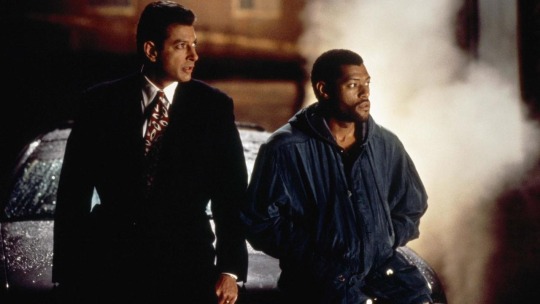
Blood on the Moon, But I’m A Cheerleader, Crooklyn, Cure, Daughters of the Dust, The Death of Dick Long, Deep Cover, The Draughtsman's Contract, Eyes of Laura Mars, Give Me Liberty, Greener Grass, Hardcore, High Hopes, The Last Party, Long Day's Journey into Night, Maiden, One Day Pina Asked, Persona, Right Now Wrong Then, Right On!, The Seventh Victim, Slightly French, Synonyms, Tammy and the T-Rex, Variety, The Watermelon Woman... and a tip of the hat to Coppola's new The Godfather Part III recut, The Godfather, Coda: The Death of Michael Corleone
40 notes
·
View notes
Text
"MANK" (2020) Review

"MANK" (2020) Review
When it comes to biopics about Hollywood history, I must admit that I have a slight addiction to them. I really enjoy reading about Hollywood history. And I especially enjoy reading about the industry's so-called "Golden Age". So, when I learned about the upcoming release of "MANK", a biopic about Hollywood screenwriter, Herman J. Mankiewicz, I was pretty eager to see it.
However . . . I never got the chance to watch "MANK" in movie theaters during the fall/winter of 2020-2021. "MANK" had the bad luck to be released while the entire world was in the grip of the COVID-19 pandemic. Although Netflix had released the film in theaters for a limited period in November 2020, the streaming service/production company eventually released it on its streaming service the following month. Because of this, a good number of months had passed before I had eventually watched it on television.
"MANK" began in 1940, when the then young wunderkind Orson Welles hired veteran screenwriter Herman J. Mankiewicz to write the screenplay for his new movie, "CITIZEN KANE". Unfortunately, Mankiewicz is in Victorville, CA; recovering from a broken leg he had sustained in a car crash. With the assistance of his secretary Rita Alexander, he becomes aware of the similarities between the movie's main character and newspaper magnate William Randolph Hearst. This awareness not only inspired Mankiewicz to work on Welles' screenplay, but also led him to recall his history with Hearst, the latter's mistress, Marion Davies; and the smear campaign against Upton Sinclair's 1934 California gubernatorial campaign.
Since "MANK" is not a documentary, but a historical drama, I knew that its narrative would not be completely accurate. However, I do believe that screenwriter Jack Fincher and his brother, director David Fincher, took a lot of liberties in regard to historical accuracies. Perhaps too much. Yes, the movie featured historical accuracies that included Mankiewicz's car accident and broken leg, his employment with both Paramount Pictures and Metro-Goldwyn-Mayer Studios, Upton Sinclair's bid for Governor of California in 1934 and of course, Mankiewicz's collaboration with Welles and John Houseman on "CITIZEN KANE".
However, the main problem with "MANK" is that Jack Fincher tried to connect the efforts to undermine Upton Sinclair's gubernatorial campaign with Mankiewicz's screenplay for "CITIZEN KANE". And it did not exactly work. It failed to work due to Mankiewicz's political beliefs. Considering that Sinclair had ran for governor as a Democrat, it seemed implausible that Mank would have been that upset over the state's business leaders - which included movie studio chief Louis B. Mayer, studio producer Irving Thalberg; and newspaper magnates like Hearst and Harry Chandler - going out of their way to undermine Sinclair's campaign. Mankiewicz's politics tend to skewer toward conservative, except when it came to fascism.
It seems quite obvious that Jack Fincher needed an explanation for why Mankiewicz had been willing to write "CITIZEN KANE", a scathing portrait of William Randolph Hearst. So he invented one. But you know what? I find myself wondering what topic had really caught the Finchers' attention - Mankiewicz's connection with Hearst, Davies and "CITIZEN KANE"; or the 1934 California gubernatorial election. Because honestly . . . it seemed as if both screenwriter and director were more interested in the latter. If that was the case, then the Fincher brothers should have solely focused the movie's topic on the election.
I have another quibble about "MANK". One I found some of the dialogue in the film's first half hour a bit too stylized for my tastes. In one early scene, it seemed as if the Finchers had tried too hard to recapture a West Coast version of the Algonquin Round Table. Also, why did the Finchers shot this film in black-and-white? What was the point? Because to me, this decision to film in black-and-white seemed like another attempt at a homage to Hollywood's Golden Age via a gimmick. And I am getting weary of gimmicks - especially unnecessary ones in Hollywood productions.
Otherwise, I did not have a problem with "MANK". There are at least three reasons why I ended up enjoying this film. One, the movie featured a first-rate character study of Herman J. Mankiewicz. I have read a good deal about him. Granted, the movie was not completely honest in the writer's characterization. The latter's political beliefs would have never led him to get upset, let alone outraged over the campaign against Upton Sinclair. However, David Fincher's screenplay did a very admirable job in capturing Mankiewicz's other traits - including his wit, his addictions and air of weariness. If I must be frank, I believe Gary Oldman's superb performance achieved this even more than the Finchers' screenplay and direction.
Two, although I found the creation of "CITIZEN KANE" rather interesting, it did not strike me as particularly unique. Well . . . I take that back. "MANK" did tell this story specifically from the screenwriter's point-of-view. The 1999 HBO film, "RKO 281", told this story mainly from Orson Welles' point-of-view. However, the movie's depiction of Hollywood's connection to California's 1934 gubernatorial election struck me as the film's more interesting and original aspect. This was especially apparent in scenes that featured a montage of the phony newsreels criticizing Sinclair and the election's final night.
One aspect of "MANK" really impressed me - namely the performances featured in the film. They either ranged from competent performances from the likes of Tom Pelphrey as Joseph Mankiewicz, Charles Dance as William Randolph Hearst, Ferdinand Kingsley as Irving Thalberg, Joseph Cross as Charles Lederer, Toby Leonard Moore as David Selznick, Sam Troughton as John Houseman, Bill Nye as Upton Sinclair and Arliss Howard as Louis B. Mayer. Mind you, I believe there were times when Howard's performance threatened to become a bit too theatrical. But I still enjoyed it. I was very impressed by the performances from Tuppence Middleton as Sara Mankiewicz, Tom Burke as Orson Welles and Amanda Seyfried as Marion Davies. As much as Seyfriend's performance impressed me, I do not believe she had deserved an Oscar or any other acting nomination for her performance. I do not believe her performance was that exceptional.
There were a handful of performances that I really enjoyed. I thought Jamie McShane gave a very emotional performance as test director Shelly Metcalf, who shot the anti-Sinclair newsreels. Frankly, Lily Collins' performance as Mankiewicz's no-nonsense secretary Rita Alexander impressed me a lot more than Seyfriend's performance. And I thought she and the leading man had managed to create a superb screen chemistry. Although I believed that Seyfriend's acting nominations were undeserved, I cannot say the same for Gary Oldman's performance as Herman J. Mankiewicz. I thought he was superb as the screenwriting icon agonizing over his earlier apathy toward the governor's election, while struggling over his alcoholism and creation of the "CITIZEN KANE" screenplay. He truly deserved his acting nominations - especially in one scene in which the main character went into a drunken rant against the Hollywood machine and Hearst.
"MANK" was definitely not the best movie of 2020. Perhaps it was one of the better ones. I still believe it could have been a better film if David and Jack Fincher had not attempted to connect the creation of "CITIZEN KANE" with California's 1934 governor election. But its re-creation of the latter proved to be one of the film's highlights. And the movie also benefited from excellent direction from David Fincher and excellent performances from a cast led by the always superb Gary Oldman. Honestly, I would have no qualms about buying a DVD copy of this film.
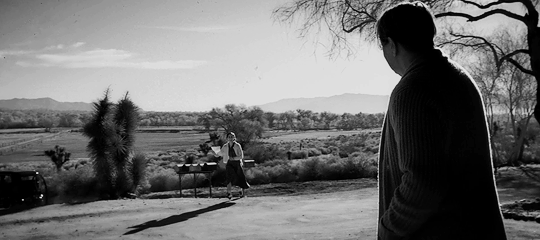
#mank#mank 2020#david fincher#jack fincher#herman j. mankiewicz#california 1934 governor election#citizen kane#old hollywood#Great Depression#gary oldman#amanda seyfried#marion davies#Lily Collins#rita alexander#tom burke#orson welles#charles dance#william randolph hearst#arliss howard#louis b. mayer#toby leonard moore#david o. selznick#ferdinand kingsley#irving thalberg#bill nye#upton sinclair#tuppence middleton#tom pelphrey#joseph l. mankiewicz#joseph cross
4 notes
·
View notes
Text
93rd Academy Awards: The List.
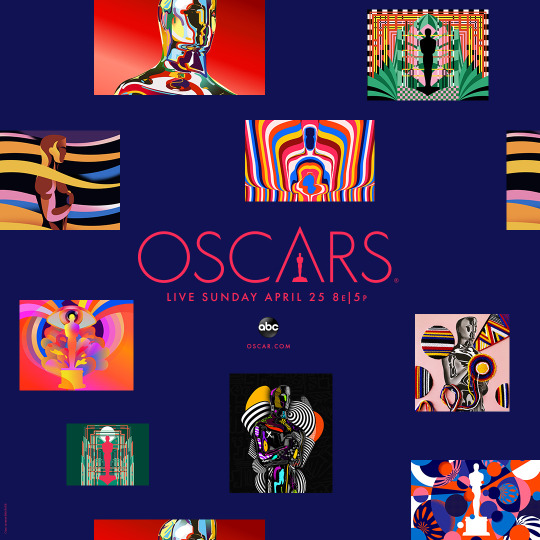
Best Picture
· Nomadland – Mollye Asher, Dan Janvey, Frances McDormand, Peter Spears and Chloé Zhao
o The Father – Philippe Carcassonne, Jean-Louis Livi and David Parfitt
o Judas and the Black Messiah – Ryan Coogler, Charles D. King and Shaka King
o Mank – Ceán Chaffin, Eric Roth and Douglas Urbanski
o Minari – Christina Oh
o Promising Young Woman – Ben Browning, Emerald Fennell, Ashley Fox and Josey McNamara
o Sound of Metal – Bert Hamelinck and Sacha Ben Harroche
o The Trial of the Chicago 7 – Stuart M. Besser and Marc Platt
Best Director
· Chloé Zhao – Nomadland
o Thomas Vinterberg – Another Round
o David Fincher – Mank
o Lee Isaac Chung – Minari
o Emerald Fennell – Promising Young Woman
Best Actor
· Anthony Hopkins – The Father as Anthony
· Riz Ahmed – Sound of Metal as Ruben Stone
· Chadwick Boseman (posthumous) – Ma Rainey's Black Bottom as Levee Green
Gary Oldman – Mank as Herman J. Mankiewicz
· Steven Yeun – Minari as Jacob Yi
Best Actress
· Frances McDormand – Nomadland as Fern
o Viola Davis – Ma Rainey's Black Bottom as Ma Rainey
o Andra Day – The United States vs. Billie Holiday as Billie Holiday
o Vanessa Kirby – Pieces of a Woman as Martha Weiss
o Carey Mulligan – Promising Young Woman as Cassandra "Cassie" Thomas
Best Supporting Actor
· Daniel Kaluuya – Judas and the Black Messiah as Fred Hampton
o Sacha Baron Cohen – The Trial of the Chicago 7 as Abbie Hoffman
o Leslie Odom Jr. – One Night in Miami... as Sam Cooke
o Paul Raci – Sound of Metal as Joe
o Lakeith Stanfield – Judas and the Black Messiah as William "Bill" O'Neal
Best Supporting Actress
· Youn Yuh-jung – Minari as Soon-ja
o Maria Bakalova – Borat Subsequent Moviefilm as Tutar Sagdiyev
o Glenn Close – Hillbilly Elegy as Bonnie "Mamaw" Vance
o Olivia Colman – The Father as Anne
o Amanda Seyfried – Mank as Marion Davies
Best Original Screenplay
· Promising Young Woman – Emerald Fennell
o Judas and the Black Messiah – Screenplay by Will Berson and Shaka King; Story by Berson, King, Keith Lucas and Kenny Lucas
o Minari – Lee Isaac Chung
o Sound of Metal – Screenplay by Abraham Marder and Darius Marder; Story by Derek Cianfrance and D. Marder
o The Trial of the Chicago 7 – Aaron Sorkin
Best Adapted Screenplay
· The Father – Christopher Hampton and Florian Zeller, based on the play by Zeller
o Borat Subsequent Moviefilm – Screenplay by Sacha Baron Cohen, Peter Baynham, Jena Friedman, Anthony Hines, Lee Kern, Dan Mazer, Erica Rivinoja and Dan Swimer; Story by Baron Cohen, Hines, Nina Pedrad and Swimer; Based on the character by Baron Cohen
o Nomadland – Chloé Zhao, based on the book by Jessica Bruder
o One Night in Miami... – Kemp Powers, based on his play
o The White Tiger – Ramin Bahrani, based on the novel by Aravind Adiga
Best Animated Feature Film
· Soul – Pete Docter and Dana Murray
o Onward – Dan Scanlon and Kori Rae
o Over the Moon – Peilin Chou, Glen Keane, and Gennie Rin
o A Shaun the Sheep Movie: Farmageddon – Will Becher, Paul Kewley, and Richard Phelan
o Wolfwalkers – Tomm Moore, Stéphan Roelants, Ross Stewart and Paul Young
Best International Feature Film
· Another Round (Denmark) in Danish – directed by Thomas Vinterberg
o Better Days (Hong Kong) in Mandarin – directed by Derek Tsang
o Collective (Romania) in Romanian – directed by Alexander Nanau
o The Man Who Sold His Skin (Tunisia) in Arabic – directed by Kaouther Ben Hania
o Quo Vadis, Aida? (Bosnia and Herzegovina) in Bosnian – directed by Jasmila Žbanić
Best Documentary Feature
· My Octopus Teacher – Pippa Ehrlich, Craig Foster and James Reed
o Collective – Alexander Nanau and Bianca Oana
o Crip Camp – Sara Bolder, Jim LeBrecht and Nicole Newnham
o The Mole Agent – Maite Alberdi and Marcela Santibáñez
o Time – Garrett Bradley, Lauren Domino and Kellen Quinn
Best Documentary Short Subject
· Colette – Alice Doyard and Anthony Giacchino
o A Concerto Is a Conversation – Kris Bowers and Ben Proudfoot
o Do Not Split – Charlotte Cook and Anders Hammer
o Hunger Ward – Skye Fitzgerald and Michael Shueuerman
o A Love Song for Latasha – Sophia Nahali Allison and Janice Duncan
Best Live Action Short Film
· Two Distant Strangers – Travon Free and Martin Desmond Roe
o Feeling Through – Doug Roland and Susan Ruzenski
o The Letter Room – Elvira Lind and Sofia Sondervan
o The Present – Ossama Bawardi and Farah Nabulsi
o White Eye – Shira Hochman and Tomer Shushan
Best Animated Short Film
· If Anything Happens I Love You – Michael Govier and Will McCormack
o Burrow – Michael Capbarat and Madeline Sharafian
o Genius Loci – Adrien Mérigeau and Amaury Ovise
o Opera – Erick Oh
o Yes-People – Arnar Gunnarsson and Gísli Darri Halldórsson
Best Original Score
· Soul – Trent Reznor, Atticus Ross and Jon Batiste
o Da 5 Bloods – Terence Blanchard
o Mank – Trent Reznor and Atticus Ross
o Minari – Emile Mosseri
o News of the World – James Newton Howard
Best Original Song
· "Fight for You" from Judas and the Black Messiah – Music by D'Mile and H.E.R.; lyric by H.E.R. and Tiara Thomas
o "Hear My Voice" from The Trial of the Chicago 7 – Music by Daniel Pemberton; lyric by Celeste and Pemberton
o "Husavik" from Eurovision Song Contest: The Story of Fire Saga – Music and lyric by Rickard Göransson, Fat Max Gsus and Savan Kotecha
o "Io sì (Seen)" from The Life Ahead – Music by Diane Warren; lyric by Laura Pausini and Warren
o "Speak Now" from One Night in Miami... – Music and lyric by Sam Ashworth and Leslie Odom Jr.
Best Sound
· Sound of Metal – Jaime Baksht, Nicolas Becker, Philip Bladh, Carlos Cortés and Michelle Couttolenc
o Greyhound – Beau Borders, Michael Minkler, Warren Shaw and David Wyman
o Mank – Ren Klyce, Drew Kunin, Jeremy Molod, Nathan Nance and David Parker
o News of the World – William Miller, John Pritchett, Mike Prestwood Smith and Oliver Tarney
o Soul – Coya Elliot, Ren Klyce and David Parker
Best Production Design
· Mank – Production Design: Donald Graham Burt; Set Decoration: Jan Pascale
o The Father – Production Design: Peter Francis; Set Decoration: Cathy Featherstone
o Ma Rainey's Black Bottom – Production Design: Mark Ricker; Set Decoration: Karen O'Hara and Diana Stoughton
o News of the World – Production Design: David Crank; Set Decoration: Elizabeth Keenan
o Tenet – Production Design: Nathan Crowley; Set Decoration: Kathy Lucas
Best Cinematography
· Mank – Erik Messerschmidt
o Judas and the Black Messiah – Sean Bobbitt
o News of the World – Dariusz Wolski
o Nomadland – Joshua James Richards
o The Trial of the Chicago 7 – Phedon Papamichael
Best Makeup and Hairstyling
· Ma Rainey's Black Bottom – Sergio Lopez-Rivera, Mia Neal and Jamika Wilson
o Emma. – Laura Allen, Marese Langan and Claudia Stolze
o Hillbilly Elegy – Patricia Dehaney, Eryn Krueger Mekash and Matthew W. Mungle
o Mank – Colleen LaBaff, Kimberley Spiteri and Gigi Williams
o Pinocchio – Dalia Colli, Mark Coulier and Francesco Pegoretti
Best Costume Design
· Ma Rainey's Black Bottom – Ann Roth
o Emma. – Alexandra Byrne
o Mank – Trish Summerville
o Mulan – Bina Daigeler
o Pinocchio – Massimo Cantini Parrini
Best Film Editing
· Sound of Metal – Mikkel E.G. Nielsen
o The Father – Yorgos Lamprinos
o Nomadland – Chloé Zhao
o Promising Young Woman – Frédéric Thoraval
o The Trial of the Chicago 7 – Alan Baumgarten
Best Visual Effects
· Tenet – Scott R. Fisher, Andrew Jackson, David Lee and Andrew Lockley
o Love and Monsters – Genevieve Camailleri, Brian Cox, Matt Everitt and Matt Sloan
o The Midnight Sky – Matthew Kasmir, Chris Lawrence, Max Solomon and David Watkins
o Mulan – Sean Andrew Faden, Steve Ingram, Anders Langlands and Seth Maury
o The One and Only Ivan – Nick Davis, Greg Fisher, Ben Jones and Santiago Colomo Martinez
2 notes
·
View notes
Text

Gene Eliza Tierney (November 19, 1920 – November 6, 1991) was an American film and stage actress. Acclaimed as a great beauty, she became established as a leading lady. Tierney was best known for her portrayal of the title character in the film Laura (1944), and was nominated for an Academy Award for Best Actress for her performance as Ellen Berent Harland in Leave Her to Heaven (1945).
Tierney's other roles include Martha Strable Van Cleve in Heaven Can Wait (1943), Isabel Bradley Maturin in The Razor's Edge (1946), Lucy Muir in The Ghost and Mrs. Muir (1947), Ann Sutton in Whirlpool (1949), Maggie Carleton McNulty in The Mating Season (1951), and Anne Scott in The Left Hand of God (1955).
I Gene Eliza Tierney was born on November 19, 1920 in Brooklyn, New York, the daughter of Howard Sherwood Tierney and Belle Lavinia Taylor. She was named after a beloved uncle, who died young.[4][page needed] She had an elder brother, Howard Sherwood "Butch" Tierney Jr., and a younger sister, Patricia "Pat" Tierney. Their father was a successful insurance broker of Irish descent, their mother a former physical education instructor.[4][page needed]
Tierney was raised in Westport, Connecticut. She attended St. Margaret's School in Waterbury, Connecticut, and the Unquowa School in Fairfield. She published her first poem, entitled "Night", in the school magazine and wrote poetry occasionally throughout her life. Tierney played Jo in a student production of Little Women, based on the novel by Louisa May Alcott.
Tierney spent two years in Europe, attending Brillantmont International School in Lausanne, Switzerland, where she learned to speak fluent French. She returned to the US in 1938 and attended Miss Porter's School in Farmington, Connecticut. On a family trip to the West Coast, she visited Warner Bros. studios, where a cousin worked as a producer of historical short films. Director Anatole Litvak, taken by the 17-year-old's beauty, told Tierney that she should become an actress. Warner Bros. wanted to sign her to a contract, but her parents advised against it because of the relatively low salary; they also wanted her to take her position in society.
Tierney's society debut occurred on September 24, 1938, when she was 17 years old. page needed] Soon bored with society life, she decided to pursue an acting career. Her father said, "If Gene is to be an actress, it should be in the legitimate theatre." Tierney studied acting at a small Greenwich Village acting studio in New York with Yiddish and Broadway actor/director Benno Schneider. She became a protégée of Broadway producer-director George Abbott.
In Tierney's first role on Broadway, she carried a bucket of water across the stage in What a Life! (1938). A Variety magazine critic declared, "Miss Tierney is certainly the most beautiful water carrier I've ever seen!" She also worked as an understudy in The Primrose Path (1938).
The following year, she appeared in the role of Molly O'Day in the Broadway production Mrs. O'Brien Entertains (1939). The New York Times critic Brooks Atkinson wrote, "As an Irish maiden fresh from the old country, Gene Tierney in her first stage performance is very pretty and refreshingly modest." That same year, Tierney appeared as Peggy Carr in Ring Two (1939) to favorable reviews. Theater critic Richard Watts Jr. of the New York Herald Tribune wrote, "I see no reason why Miss Tierney should not have an interesting theatrical career – that is, if cinema does not kidnap her away."
Tierney's father set up a corporation, Belle-Tier, to fund and promote her acting career. Columbia Pictures signed her to a six-month contract in 1939. She met Howard Hughes, who tried unsuccessfully to seduce her. From a well-to-do family herself, she was not impressed by his wealth. Hughes eventually became a lifelong friend.
After a cameraman advised Tierney to lose a little weight, she wrote to Harper's Bazaar magazine for a diet, which she followed for the next 25 years. Tierney was initially offered the lead role in National Velvet, but production was delayed. page needed] When Columbia Pictures failed to find Tierney a project, she returned to Broadway and starred as Patricia Stanley to critical and commercial success in The Male Animal (1940). In The New York Times, Brooks Atkinson wrote, "Tierney blazes with animation in the best performance she has yet given". She was the toast of Broadway before her 20th birthday. The Male Animal was a hit, and Tierney was featured in Life magazine. She was also photographed by Harper's Bazaar, Vogue, and Collier's Weekly.
Two weeks after The Male Animal opened, Darryl F. Zanuck, the head of 20th Century Fox, was rumored to have been in the audience. During the performance, he told an assistant to note Tierney's name. Later that night, Zanuck dropped by the Stork Club, where he saw a young lady on the dance floor. He told his assistant, "Forget the girl from the play. See if you can sign that one." It was Tierney. At first, Zanuck did not think she was the actress he had seen. Tierney was quoted (after the fact), saying: "I always had several different 'looks', a quality that proved useful in my career."
Tierney signed with 20th Century-Fox[4][page needed] and her motion picture debut was in a supporting role as Eleanor Stone in Fritz Lang's western The Return of Frank James (1940), opposite Henry Fonda.
A small role as Barbara Hall followed in Hudson's Bay (1941) with Paul Muni and she co-starred as Ellie Mae Lester in John Ford's comedy Tobacco Road (also 1941), and played the title role in Belle Starr alongside co-star Randolph Scott, Zia in Sundown, and Victoria Charteris (Poppy Smith) in The Shanghai Gesture. She played Eve in Son of Fury: The Story of Benjamin Blake (1942), as well as the dual role of Susan Miller (Linda Worthington) in Rouben Mamoulian's screwball comedy Rings on Her Fingers, and roles as Kay Saunders in Thunder Birds, and Miss Young in China Girl (all 1942).
Receiving top billing in Ernst Lubitsch's comedy Heaven Can Wait (1943), as Martha Strable Van Cleve, signaled an upward turn in Tierney's career. Tierney recalled during the production of Heaven Can Wait:
Lubitsch was a tyrant on the set, the most demanding of directors. After one scene, which took from noon until five to get, I was almost in tears from listening to Lubitsch shout at me. The next day I sought him out, looked him in the eye, and said, 'Mr. Lubitsch, I'm willing to do my best but I just can't go on working on this picture if you're going to keep shouting at me.' 'I'm paid to shout at you', he bellowed. 'Yes', I said, 'and I'm paid to take it – but not enough.' After a tense pause, Lubitsch broke out laughing. From then on we got along famously.
Tierney starred in what became her best-remembered role: the title role in Otto Preminger's film noir Laura (1944), opposite Dana Andrews. After playing Tina Tomasino in A Bell for Adano (1945), she played the jealous, narcissistic femme fatale Ellen Berent Harland in Leave Her to Heaven (1945), adapted from a best selling novel by Ben Ames Williams. Appearing with Cornel Wilde, Tierney won an Academy Award nomination for Best Actress. This was 20th Century-Fox' most successful film of the 1940s. It was cited by director Martin Scorsese as one of his favorite films of all time, and he assessed Tierney as one of the most underrated actresses of the Golden Era.
Tierney then starred as Miranda Wells in Dragonwyck (1946), along with Walter Huston and Vincent Price. It was Joseph L. Mankiewicz' debut film as a director, In the same period, she starred as Isabel Bradley, opposite Tyrone Power, in The Razor's Edge (also 1946), an adaptation of W. Somerset Maugham's novel of the same name. Her performance was critically praised.
Tierney played Lucy Muir in Mankiewicz's The Ghost and Mrs. Muir (1947), opposite Rex Harrison. The following year, she co-starred again with Power, this time as Sara Farley in the successful screwball comedy That Wonderful Urge (1948). As the decade came to a close, Tierney reunited with Laura director Preminger to star as Ann Sutton in the classic film noir Whirlpool (1949), co-starring Richard Conte and José Ferrer. She appeared in two other film noirs: Jules Dassin's Night and the City, shot in London, and Otto Preminger's Where the Sidewalk Ends (both 1950), reunited with both Preminger and leading man Dana Andrews, who she appeared with in five movies total.
Tierney was loaned to Paramount Pictures, giving a comic turn as Maggie Carleton in Mitchell Leisen's ensemble farce, The Mating Season (1951), with John Lund, Thelma Ritter, and Miriam Hopkins. She gave a tender performance as Midge Sheridan in the Warner Bros. film, Close to My Heart (1951), with Ray Milland. The film is about a couple trying to adopt a child. Later in her career, she was reunited with Milland in Daughter of the Mind (1969).
After Tierney appeared opposite Rory Calhoun as Teresa in Way of a Gaucho (1952), her contract at 20th Century-Fox expired. That same year, she starred as Dorothy Bradford in Plymouth Adventure, opposite Spencer Tracy at MGM. She and Tracy had a brief affair during this time.[10] Tierney played Marya Lamarkina opposite Clark Gable in Never Let Me Go (1953), filmed in England.
In the course of the 1940s, she reached a pinnacle of fame as a beautiful leading lady, on a par with "fellow sirens Rita Hayworth, Lana Turner and Ava Gardner". She was "called the most beautiful woman in movie history" and many of her movies in the 1940s became classic films.
Tierney remained in Europe to play Kay Barlow in United Artists' Personal Affair (1953). While in Europe, she began a romance with Prince Aly Khan, but their marriage plans met with fierce opposition from his father Aga Khan III. Early in 1953, Tierney returned to the U.S. to co-star in the film noir Black Widow (1954) as Iris Denver, with Ginger Rogers and Van Heflin.
Tierney had reportedly started smoking after a screening of her first movie to lower her voice, because she felt, "I sound like an angry Minnie Mouse." She subsequently became a heavy smoker.
With difficult events in her personal life, Tierney struggled for years with episodes of manic depression. In 1943, she gave birth to a daughter, Daria, who was deaf and mentally disabled, the result of a fan breaking a rubella quarantine and infecting the pregnant Tierney while she volunteered at the Hollywood Canteen. In 1953, she suffered problems with concentration, which affected her film appearances. She dropped out of Mogambo and was replaced by Grace Kelly.[4][page needed] While playing Anne Scott in The Left Hand of God (1955), opposite Humphrey Bogart, Tierney became ill. Bogart's sister Frances (known as Pat) had suffered from mental illness, so he showed Tierney great sympathy, feeding her lines during the production and encouraging her to seek help.
Tierney consulted a psychiatrist and was admitted to Harkness Pavilion in New York. Later, she went to the Institute of Living in Hartford, Connecticut. After some 27 shock treatments, intended to alleviate severe depression, Tierney fled the facility, but was caught and returned. She later became an outspoken opponent of shock treatment therapy, claiming it had destroyed significant portions of her memory.
In late December 1957, Tierney, from her mother's apartment in Manhattan, stepped onto a ledge 14 stories above ground and remained for about 20 minutes in what was considered a suicide attempt. Police were called, and afterwards Tierney's family arranged for her to be admitted to the Menninger Clinic in Topeka, Kansas. The following year, after treatment for depression, she was discharged. Afterwards, she worked as a sales girl in a local dress shop with hopes of integrating back into society, but she was recognized by a customer, resulting in sensational newspaper headlines.
Later in 1958, 20th Century-Fox offered Tierney a lead role in Holiday for Lovers (1959), but the stress upon her proved too great, so only days into production, she dropped out of the film and returned to Menninger for a time.
Tierney made a screen comeback in Advise and Consent (1962), co-starring with Franchot Tone and reuniting with director Otto Preminger.[4][page needed] Soon afterwards, she played Albertine Prine in Toys in the Attic (1963), based on the play by Lillian Hellman. This was followed by the international production of Las cuatro noches de la luna llena, (Four Nights of the Full Moon - 1963), in which she starred with Dan Dailey. She received critical praise overall for her performances.
Tierney's career as a solid character actress seemed to be back on track as she played Jane Barton in The Pleasure Seekers (1964), but then she suddenly retired. She returned to star in the television movie Daughter of the Mind (1969) with Don Murray and Ray Milland. Her final performance was in the TV miniseries Scruples (1980).
Tierney married two men: the first was Oleg Cassini, a costume and fashion designer, on June 1, 1941, with whom she eloped. She was 20 years old. Her parents opposed the marriage, as he was from a Russian-Italian family and born in France. She had two daughters, Antoinette Daria Cassini (October 15, 1943 – September 11, 2010) and Christina "Tina" Cassini (November 19, 1948 – March 31, 2015).
In June 1943, while pregnant with Daria, Tierney contracted rubella (German measles), likely from a fan ill with the disease. Antoinette Daria Cassini was born prematurely in Washington, DC, weighing three pounds, two ounces (1.42 kg) and requiring a total blood transfusion. The rubella caused congenital damage: Daria was deaf, partially blind with cataracts, and severely mentally disabled. She was institutionalized for much of her life. This entire incident was inspiration for a plot point in the 1962 Agatha Christie novel The Mirror Crack'd from Side to Side.
It is claimed that she had an affair with Mohammad Reza Shah of Iran during the late 1940s.
Tierney's friend Howard Hughes paid for Daria's medical expenses, ensuring the girl received the best care. Tierney never forgot his acts of kindness. Daria Cassini died in 2010, at the age of 66.
Tierney and Cassini separated October 20, 1946, and entered into a property settlement agreement on November 10. Periodicals during this period record Tierney with Charles K. Feldman, including articles related to her "twosoming" with Feldman, her "current best beau". The divorce was to be finalized in March 1948, but they reconciled before then.
During their separation, Tierney met John F. Kennedy, a young World War II veteran, who was visiting the set of Dragonwyck in 1946. They began a romance that she ended the following year after Kennedy told her he could never marry her because of his political ambitions. In 1960, Tierney sent Kennedy a note of congratulations on his victory in the presidential election. During this time, newspapers documented Tierney's other romantic relationships, including Kirk Douglas.
While filming for Personal Affair in Europe, she began a romance with Prince Aly Khan. They became engaged in 1952, while Khan was going through a divorce from Rita Hayworth. Their marriage plans, however, met with fierce opposition from his father, Aga Khan III.
Cassini later bequeathed $500,000 in trust to Daria and $1,000,000 to Christina. Cassini and Tierney remained friends until her death in November 1991.
In 1958, Tierney met Texas oil baron W. Howard Lee, who had been married to actress Hedy Lamarr since 1953. Lee and Lamarr divorced in 1960 after a long battle over alimony, then Lee and Tierney married in Aspen, Colorado, on July 11, 1960. They lived quietly in Houston, Texas, and Delray Beach, Florida until his death in 1981.
Despite her self-imposed exile in Texas, Tierney received work offers from Hollywood, prompting her to a comeback. She appeared in a November 1960 broadcast of General Electric Theater, during which time she discovered that she was pregnant. Shortly after, 20th Century Fox announced Tierney would play the lead role in Return to Peyton Place, but she withdrew from the production after suffering a miscarriage.
Tierney's autobiography, Self-Portrait, in which she candidly discusses her life, career, and mental illness, was published in 1979.
Tierney's second husband, W. Howard Lee, died on February 17, 1981 after a long illness.[24]
In 1986, Tierney was honored alongside actor Gregory Peck with the first Donostia Lifetime Achievement Award at the San Sebastian Film Festival in Spain.
Tierney has a star on the Hollywood Walk of Fame at 6125 Hollywood Boulevard.
Tierney died of emphysema on November 6, 1991, in Houston, thirteen days before her 71st birthday. She is interred in Glenwood Cemetery in Houston.
Certain documents of Tierney's film-related material, personal papers, letters, etc., are held in the Wesleyan University Cinema Archives, though her papers are closed to the public.
21 notes
·
View notes
Text
Mank
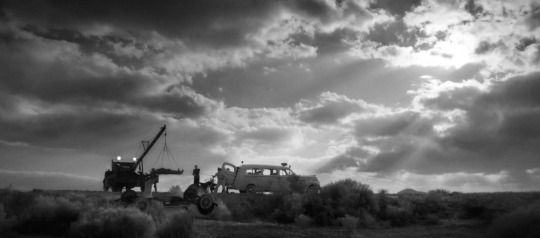
Director David Fincher Stars Gary Oldman, Lily Collins, Amanda Seyfried, Sam Troughton USA 2020 Language English, a tiny bit of German, some Latin sayings 2hrs 11mins Black & white
Lovely-to-look at but essentially pointless delve into ancient and very dull Hollywood gossip
The selling point for this film is, apparently, its contribution to the debate over who wrote Citizen Kane. Really? Really? After almost 80 years, is it vital to figure out exactly how much Herman Mankiewicz contributed to the script versus how much (if anything) Orson Welles put in? What about John Houseman, Roger Q Denny and Mollie Kent, all of whom the IMDB suggests made uncredited contributions to the screenplay but whose possible input is not acknowledged in this movie? (Other than Houseman supplying the stationery and surroundings for Mankiewicz to do the work.)

This all seems remarkably small beer – it’s not as if Mankiewicz was like one of the blacklisted writers whose names didn’t appear on the work they wrote. His name was in the movie, he did get the Oscar. He’s one of the reasons Kane is a terrific film, but then so were Joseph Cotton and Agnes Morehead (actors) and Gregg Toland (cinematographer) and Robert Wise (editor) and Bernard Hermann (composer) and everyone else who worked on the picture.
Likewise, are there really people out there desperate to revisit the accident gossip about William Randolph Hearst, especially as this film takes a fairly unexciting take on him? Maybe I’m wrong, maybe this is all the stuff of urgent debate. Maybe you’ve been smarting since 1999’s RKO 281told the same story, only from Welles’ side.
One thing the two films have in common is that they are littered with limeys. In RKO 281, we had David Suchet as Louis B Mayer and Fiona Shaw and Brenda Blethyn and as gossip column rivals Hedda Hopper and Louella Parsons and even Roger Allam as Walt Disney! In Mank, meanwhile, we’ve got Gary Oldman as the lead character, plus Tuppence Middleton as his wife Sara, Ferdinand Kingsley as Irving Thalberg, Charles Dance as Hearst and Tom Burke as Welles. It’s ridiculous. The only fully* British character is played by the less British-than-you-might-think Lily Collins, who indeed struggles with the accent.
New Cross’ Gary Oldman is 62 years old. Herman J Mankiewicz was only 55 when he died in 1953. The film doesn’t fudge this: Oldman’s Mankiewicz actually says. ‘I’m 43,’ presumably to the bafflement of the audience. And that’s during the 1940 segment of the movie – there are plenty of flashbacks to the 1930s when Mank was in his thirties. There’s no obvious attempt to de-age Oldman – I think we’re meant to accept that Mankiewicz’ alcoholism had taken a brutal toll.

So the plot is this: Mankiewicz, who has been injured in a car crash, is parked by Welles and Houseman on a ranch in the desert to write a script, tended to by a German nurse (Monika Gossmann) and a British typist (Collins). While working on the script, he flashes back to how he first met Hearst and Hearst’s mistress, actress Marion Davies (Amanda Seyfried), his friendship with them and troubled working relationship with MGM bosses Louis B Mayer and Irving Thalberg.
There’s something admirable perverse/ambitious about a glossy 2020 production that invites its audience to join with Mank in sneering at people who don’t know the difference between Upton Sinclair and Sinclair Lewis.** Upton Sinclair’s candidacy for the governorship of California indirectly triggers the crisis in the friendship between Mank and Hearst, which ultimately leads (in this telling of the story) to Kane. This section of the movie is both protracted yet incomplete and unconvincing.
Mankiewicz was by all accounts a big character. Unsurprisingly, then, directors chose grand hams to play him: John Malkovich in RKO 281 and Oldman here. For me, there’s no getting past how ridiculously old Oldman is for the role. The drinking and his reliance on a young secretary also reminded me of Oldman’s portrayal of Winston Churchill in The Darkest Hour, one of the most despicable and disgraceful films of recent times. But as Oldman performances go, this is one of the more likeable. Just not one that should ever have happened.
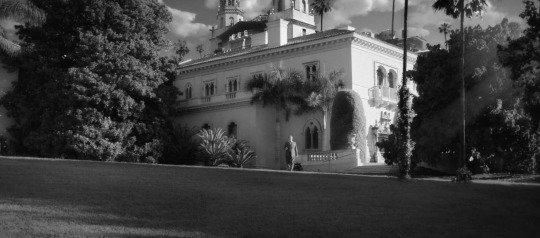
The best thing about the film by a very long way is the luscious black & white photography. The film plays around a bit – at times it hints a full pastiche of old movies, including the use of rear projection when the characters are in a car and having cue marks, the little circles on the top right of the screen to tell the projectionist to change the reel. At other times, though, it’s quite clearly using all the tricks and tools of 2020. It’s great work from cinematographer Eric Messerschmidt, whose previous director of photography stints have mostly been on TV.
The feeling I was mostly left with by this film is: why? What’s it for? To give a juicy role to an overindulged and miscast actor? To recreate the glory of lost Hollywood, just because we can? There have been far better recent excursions into the movie industry’s past: the Coen’s Hail, Caesar!, Trumbo or the TV show Feud, for instance. And, to be fair, there have been worse: this probably has the edge on Rules Don’t Apply. But I feel that if someone like me – who goes into this knowing who Thalberg and Houseman and Ben Hecht and Charles MacArthur and so on were – doesn’t really care, why would anyone else?
*Houseman was half-British and very much English educated. He’s played by Sam Troughton, who you could probably correctly guess is Patrick Troughton’s grandson.
**I’m happy to admit this is something I’ve always struggled with, having never read a word either wrote.
1 note
·
View note
Text
2020
Predict-o-meter: This year: 9/12; Total: 117/147 (80%)
Hey. What’s up? Anything much happen since we talked last March?
Delayed, but undaunted, it is a minor miracle that the Oscars are happening at all, and even more surprising that they have managed to assemble a fairly strong class of eight films, due in large part to the advent of streaming services as original content creators.
It was a big year for 1968 Chicago, with two nominated films - “Judas and the Black Messiah,” and “The Trial of the Chicago 7” - plumbing the depths of that tumultuous time and place (Black Panther Chairman Fred Hampton appears in both films).
And it was a good year for innovation, with films like “The Father,” “Nomadland,” and “Sound of Metal” boldly exploring new techniques in film-making.
But, of course, overall it was a very bad year, but instead of dwelling on that, let’s jump right in, shall we?
The Father is the story of a successful, retired engineer who is sliding into dementia and vehemently resisting his daughter’s attempts to help him by hiring in-home caregivers. Anthony Hopkins (nominated) is breathtaking as the titular father (also named Anthony), but Olivia Colman (also nominated) matches him as his put-upon daughter, Anne.
Most films that deal with such topics do so from the outside. We watch the decline of the afflicted person and judge their reasonableness by the reactions of those around them. When they are delusional or hallucinating we know because the other characters say so, and we believe them.
The genius of “The Father” is that it goes to great lengths to effectively put the audience in Anthony’s shoes. Scenes are shot out of sequence, and sometimes repeated. The time and even the setting change without warning. And, most disconcertingly, the actors playing certain roles may be different from scene to scene. So when Anthony can’t recognize his own daughter we are right there with him because the woman standing in front of him is not the same one originally introduced as Anne.
This leads to confusion and disorientation in the viewer which, if not as intense as Anthony’s, at least allows an empathetic glimpse into his declining mental state. This is no light-hearted romp; there will be no happily ever after. Anthony ends up confused and afraid, sobbing uncontrollably and crying for his mommy. But he is never alone, and he is never uncared for, making this a deeply touching, deeply human story. With impeccable acting and innovative storytelling, “The Father” is certainly a worthy nominee by any standard.
Judas and the Black Messiah tells the incredible true story of the war waged between the FBI and the Black Panther party in Chicago in the late 60s. LaKeith Lee Stanfield (nominated) plays ‘Wild’ Bill O’Neal, a two-bit hustler who flashes a fake FBI badge, claims the car outside is stolen, confiscates the keys, and then makes off with the car. When he is caught and facing prison time for impersonating a Federal agent he decides to become an informant and is sent to infiltrate the local chapter of the Black Panther Party who’s young, articulate, charismatic leader, Fred Hampton (played by Daniel Kaluuya, also nominated) is on an FBI watch list as having the potential to become a Black Messiah and galvanize the minority population across the nation.
The world created in the film is nuanced, complex, and anything but black and white (pardon the pun). On the one hand, Chairman Hampton reaches out not only to a rival Black gang, but also to white supremacists flying the stars and bars, and a Latino gang as well. By making common cause on the grounds of lack of economic opportunity and harassment by the ‘pigs,’ Hampton forms the first Rainbow Coalition, much to the consternation of the closely-watching FBI. On the other hand, Wild Bill’s handler, Agent Mitchell, starts out all gung-ho to fight domestic terrorists, but becomes disconcerted about his superiors’ willingness - even eagerness - to cut legal corners in order to achieve desired ends. For his part, Wild Bill enters the informant agreement as a total cynic looking out for number one. But a grudging admiration for Hampton’s goals and methods leads him to question his role in the unfolding drama.
O’Neal wants out, but Mitchell (and an impending sentence) won’t let him. Mitchell wants to do things by the book, but the FBI won’t let him. Hampton wants to do things peacefully, but the Chicago police won’t let him. All three men become swept up by forces beyond their control that propel them to an inevitable, tragic, and violent climax. Stanfield and Kaluuya both give such commanding performances that apparently the Academy could not decide which of them was the lead, nominating both for Best Supporting Actor in a curious move. The storytelling is fast-paced with several independent plot threads that director Shaka King masterfully weaves into a coherent, compelling tapestry to create a film that is at once edifying and thoroughly entertaining.
Mank is a great movie about the making of the greatest movie. When a young Orson Welles is given carte blanche to make any movie he wants with full creative control, he brings in Herman ‘Mank’ Mankiewicz (played with verve by the nominated Gary Oldman) to write the screenplay. In 60 days.
Mank is a (barely) functioning alcoholic, gadfly, bon vivant, and frustrated auteur who feels that his artistry is constantly being watered down by the studios to appease the masses. Hence he finds Welles’ offer of no studio oversight irresistible. Recovering from a car accident, Mank spends the entire writing process bed-ridden and tended by a stern German hausfrau to care for his material needs and an attractive British woman to take dictation who spends equal time worrying over her husband in the Royal Navy and skewering Mank with disapproving glances at his irreverent behavior.
Through flashbacks we see Mank cut an Oscar-Wilde-esque figure that gains him entree into the world of the upper crust of Hollywood. He becomes a favored dinner guest of William Randolph Hearst because his snide, witty, risqué repartee provides - as the Las Vegas ad says - just the right amount of wrong.
From the opening title to the closing credits the film is shot entirely in the style of 1940s Hollywood: in black and white, with outsized characters spitting rapid-fire snappy patter and sizzling dialog, a melodramatic score, and a large, talented supporting cast.
Arliss Howard shines as studio mogul Louis B. Mayer, and basically steals the entire movie with a sequence in which he violently punches a man to the ground for anti-semitism, cheerfully and grandiosely pontificates upon the glory that is MGM studios, and tearfully enjoins the rank and file of said studio to accept a 50% pay cut due to the Depression - all within the span of about 30 seconds while barely taking a breath. Tuppence Middleton is also wonderful as Mank’s long-suffering wife (universally known as ‘Poor Sara’), who is every bit Mank’s equal when it comes to wit, but who cannot match his irresponsibility and so is back East caring for their children throughout the writing process. What “Mank” lacks in historical accuracy it makes up for in plain old fun. A thoroughly enjoyable film.
Minari is, despite its Korean origins, an unabashed love sonnet to the American Dream. Jacob, played by Steven Yeun in a nominated role, is a world-class chicken sexer with larger ambitions. Because of his amazing speed at separating male chicks from female he manages to scrape together enough money to buy a plot of land in rural Arkansas and pursue his dream of starting his own farm.
His pragmatic wife Monica does not share this dream and reluctantly agrees to move with their two children from the comfortable confines of California - with its thriving Korean community - to the hinterlands, and is discomfited to find that their new home is a trailer parked next to a large, empty field in the middle of nowhere.
They both take jobs as sexers at a local poultry farm where Monica is much slower than her husband but is told that she is “fast enough for Arkansas.” But Jacob is restless and begins to spend more and more time trying to get his ‘garden of Eden’ up and running.
One of the first tasks is to dig a well, and when a dowser comes out to demonstrate his skill at locating water Jacob explains to his young son David that, “Americans believe nonsense, but Koreans use their minds.” The viewer would be forgiven at this stage for thinking that this will become a theme of the film with the Koreans rolling their eyes at the eccentricities of their American neighbors and maintaining an insular distance to preserve their culture, but nothing could be further from the truth.
Rather the theme that develops could be summarized as coexistence without assimilation. The differences between the Koreans and Americans are not ignored, nor are they celebrated; they simply are. When David’s classmate Johnnie asks him why his face is so flat there is no racist animus behind the question, merely childish curiosity. And the two go on to become fast friends. Similarly, Jacob may find his handyman Paul’s tradition of dragging a heavy wooden cross through the back roads of the area each Sunday as very strange, but Paul is a good and loyal worker, so where’s the harm?
Our expectations are further defied with the arrival of Monica’s mother Soonja (played by Yuh-jung Youn in a show-stealing nominated role) from Korea to help look after the kids. We expect a stern, disapproving ‘tiger mother’ but find instead that she is kind-hearted, mischievous, and foul-mouthed in equal measure.
Though 7yo David, whom she had never met before her arrival, is initially stand-offish, the two eventually form a bond and take to going off on exploratory hikes on which Soonja encourages David into more physical activity than his over-protective mother generally allows due to a congenital heart condition.
It is during one of these excursions that Soonja finds a perfect spot on the banks of a creek in the woods to plant the seeds of minari (Korean water chestnut) that she has brought with her from Korea.
Through hard work and perseverance the family seems to be making their way. Monica is accepted at the local church, the kids make friends at school, Jacob and Paul manage to get a crop planted and harvested, and even David’s heart condition seems to be spontaneously healing.
But when disaster strikes and the crop is lost they find that Soonja’s minari - transplanted from Korea - is thriving in America and has spread widely along the creek banks, providing enough of a crop to squeak by.
“Minari” is a quiet, gentle little film that touches upon some large, sweeping themes that we like to think of as American but are really universal: success through hard work and self-reliance, but also the importance of family and community. And, most of all, tolerance of other cultures that is born out of mutual respect. I think we all could do with a bit more of this version of the American Dream right now.
Nomadland blurs the distinction between documentary and feature film. The town of Empire, NV really did essentially evaporate when the local gypsum plant shut down, and most of the people who appear onscreen are actually nomads playing slightly idealized versions of themselves.
The two primary exceptions are Frances McDormand (nominated), as Fern, who blends in so well that many of the nomads didn’t realize she was an Oscar-winning actress and accepted her as one of their own, and David Strathairn as Dave, who sticks out like such a sore thumb that he may as well have ‘ACTOR’ tattooed across his forehead.
The nomads are a cadre of mostly older Americans who have taken to the road in modified vans to eke out a meager existence on the peripheries of society. Fern joins their ranks after the death of her husband leaves her with absolutely no reason to stay in Empire and few resources to resettle anywhere else. After a helpful seminar on what size bucket to shit in and a stern lecture about the necessity of having a spare tire, Fern careens across the American west finding temporary, seasonal work at Amazon fulfillment centers, National Parks, and even Wall Drug.
If I had to summarize “Nomadland” in a single word that word would be ‘bleak.’ Though the nomads form a transient community that is supportive and operates primarily on goodwill and barter, their personal relationships tend to be impermanent (with an over-arching vague promise to meet again ‘down the road’) and their lives tend to be characterized by isolation and desperation, always one medical issue or flat tire away from death.
The film is presented diary style, following Fern’s day-to-day activities over the course of a year, with little narrative superimposed. The closest thing to a plot thread is Dave’s gentle but persistent attempts at a relationship with Fern, which mostly seems inexplicable given that Fern is barely civil to him.
If you are into ‘slice of life’ films that provide a glimpse into another culture then maybe “Nomadland” is for you, but I might recommend upping your Zoloft dosage before watching.
Promising Young Woman introduces us to Cassie (short for Cassandra - the Greek prophetess who was never believed), a woman young enough to still be hot, but old enough to ‘know better,’ who has a very strange hobby: she frequents bars and clubs, pretends to be falling-down drunk, and waits for some ‘nice’ guy to take her home.
When said ‘nice’ guy inevitably makes both his intentions and his lack of concern over her consent known, but before things get too out of hand, she suddenly reveals her stone-cold sobriety and confronts her would-be paramour, much to his consternation and frustration. In the real world one might expect these confrontations to turn violent - either on her part or his - but in Cassie’s world they end with the ineffectual guy feeling chagrinned and Cassie feeling smug.
We gradually learn that Cassie and her lifelong bestie Nina were once promising med students, but Nina got blackout drunk at a party and was gang raped, leading them both to drop out, Nina to commit suicide, and Cassie to resign herself to living with her parents and slumming a dead-end barista job. And that’s just Act 1.
Act 2 sees the introduction of a love interest in the form of a former med-school classmate now turned successful pediatric surgeon, and the pair spiral off into a brief rom-com that seemingly puts Cassie well on her way to healing and getting on with her life.
Then a tragic plot twist (no spoilers here) propels Cassie into an Act 3 full of vengeance and, yes, violence, but probably not quite in the way you were expecting.
“Promising Young Woman” is a searing indictment of the rape culture that values the career prospects of young men over the well-being and even lives of young women. Carey Mulligan stars as Cassie and is remarkable. Her nuanced performance captures a struggle with mental illness along with a parallel struggle to conceal it; her Best Actress nomination is richly deserved. And comedian Bo Burnham shows some surprising acting chops as the love interest.
Overall some of the scenarios portrayed may seem a tad unrealistic (a withering stare seems to be all that is needed to put obnoxious men in their place), but the film creates a self-consistent ethos that makes this forgivable. There is a rich and compelling plot, with a couple great twists leading to a conclusion that is both tragic and oddly satisfying. Though it deals with very heavy subject matter the film never feels preachy or heavy-handed. There are no graphic scenes and no nudity. “Promising Young Woman” manages to be thought-provoking without being gratuitously shocking, which, considering the subject matter, is no mean feat.
Sound of Metal. There is a common story-telling trope that goes like this: take a protagonist who is generally happy and comfortable, suddenly rip them from their familiar surroundings into a strange new world, launch them on a quest to return to their ‘normal’ life, but when they finally achieve that goal have them discover that the journey has changed them to such an extent that they no longer fit into their once-idyllic world. Neil Gaiman has basically made a career out of telling stories of this type.
“Sound of Metal” follows this traditional outline in a very non-traditional way. Ruben, played by Riz Ahmed in a nominated role, is living his best life. A former heroin addict rescued by the love of a good woman, he now tours with her incessantly as the drummer of their heavy-metal duo. It’s just the two of them in their RV, traveling the country, doing shows, and loving each other with no rules or restrictions.
This all comes crashing down when Ruben suffers sudden and almost complete hearing loss. His partner Lou leverages some connections and manages to find him a spot in a deaf community and they drive off to check it out. At this point Ruben is very much thinking this is a temporary condition. A doctor has told him about cochlear implants, which he sees as a panacea to get him back to normal with the only barrier being the expense of the procedure. Lou convinces the reluctant Ruben to stay with the community - at least temporarily while they figure things out - and then flies home to her rich parents’ house.
The community is loosely led by Joe, a stern and wizened figure who basically plays Yoda to Ruben’s Luke. Right off the bat Joe explains that this is an immersive experience, so he confiscates Ruben’s phone and RV keys, and explains to Ruben that the members of the community view deafness as a way of life with a rich culture, not an ailment to be cured.
At first Ruben nods along politely, but is clearly not fully engaged. But gradually he learns sign language and begins to assimilate into the community. A major step in this process is Ruben’s involvement with an associated school for deaf children where he is able to bond with the kids by introducing them to drumming.
Eventually Ruben appears to embrace the community fully to the point where Joe offers him a job so he can stick around permanently. But throughout this entire process Ruben has been secretly plotting to get his old life back. He sells the band’s sound equipment as well as the RV to raise funds for the operation, and sneaks into Joe’s office when no one is looking to access the internet and arrange appointments.
While the surgery is nominally successful and restores some measure of Ruben’s hearing, the results are by no means what he expected.
On the one hand, true to his stated policy, Joe informs Ruben that since he is no longer a part of the deaf community he can no longer stay with them.
And on the other hand, the sound Ruben now hears is mechanical and distorted, and while it works well enough to allow him to carry on a one-on-one conversation in isolation, in any situation with significant background noise - a crowded room, a busy street - the distortion becomes overwhelming and he can barely make out what is being said.
When he is reunited with Lou it becomes clear to him that while she still loves him, she has moved on and prospered professionally and no longer pines for their previous nomadic existence. Finally Ruben accepts that his life is changed and he removes the external sound processors associated with the implants and revels in resulting absolute silence.
“Sound of Metal” is a well-crafted film with all of the requisite components - strong characters, compelling plot, good direction. But the genius of the film is in its sound design. We are frequently put inside Ruben’s head and allowed to hear what he is hearing, often to devastating effect. Early in the film the band is onstage and Ruben is pounding on the drums for all he’s worth, but what we hear is nothing but a muted wumpf wumpf wumpf. Later, after the implants, Lou is singing a beautiful song with her father at a party and Ruben stands in the crowd paying seemingly rapturous attention. Then our sonic perspective is shifted to his and we realize that what he is actually hearing is such a garbled mess that you can barely make on the melody. This powerful device increases our empathy for and understanding of Ruben’s journey throughout the film and serves to make his realization that his life, as he knew it, is over all the more impactful. Truly brilliant work from a film-making craft that is often under-appreciated.
The Trial of the Chicago 7. If the phrase “there’s a lot to unpack here” did not exist then it would need to be invented for this film. With more strong characters with independent backstories and plot threads than an Avengers movie, it is truly a spectacle to behold.
Based on the trial of eight defendants arrested for conspiracy to incite the riots that marred the 1968 Democratic National Convention in Chicago, most of the action is set in the raucous courtroom with frequent flashbacks to elucidate specific testimony.
The eight defendants can barely stand one another and have little in common save the notion that war is generally a bad idea. This, of course, is awkward for the Government’s case that they conspired together since by all appearances they couldn’t conspire to order a ham sandwich. Throw in an increasingly unhinged judge and an acerbic defense lawyer who collects contempt citations like Pokemon, and all you can do is sit back and reach for the popcorn.
But this isn’t all fun and games. The reason it is the Chicago 7, rather than the Chicago 8, is because the trial of Bobby Seale, a member of the Black Panther Party and the only Black defendant, was declared a mistrial halfway through the proceedings. Abbie Hoffman (played with typical flamboyant exuberance by Sacha Baron Cohen in a nominated role) wryly observes that Seale was only thrown in to scare the jury; he is not even represented by the same lawyer as the other 7. And since his lawyer can’t be present due to a medical emergency he consistently points out that his right to representation is being violated, much to the consternation of the judge.
This all comes to a head when, after one of Seale’s repeated outbursts, the judge orders him removed from the courtroom and “dealt with.” He returns shackled and gagged, which is a bridge too far for the Federal prosecutor who is already concerned that this trial is being pursued for largely political reasons.
There are some serious and substantive discussions of social issues of the day as well, but for the most part the film is a fast-paced roller coaster ride that is just a lot of fun. With a strong and star-studded ensemble cast (is that Michael Keaton?) and sure-handed direction from writer-director Aaron Sorkin (nominated for writing, not directing) who manages to balance entertainment with a strong message “The Trial of the Chicago 7” is sure to be a crowd-pleaser.
So which SHOULD win?
The two films that I most enjoyed watching were “Mank” and “The Trial of the Chicago 7,” and both for similar reasons: great ensemble casts, compelling stories, quick-witted snappy dialogue. But I think the one that would stand up best to repeated viewings is “Mank,” so that’s my pick.
But which will win?
Much to my befuddlement the clear odds-on favorite to win is “Nomadland,” the only film in the bunch that I did not enjoy. At all. “The Trial of the Chicago 7” is a distant second, but there has been some chatter that it might have a chance due to the new ranked-choice voting. The thinking is that “Nomadland” may well win the first-choice votes, but it’s support in the second- and third-choice slots will drop dramatically, which will allow “The Trial of the Chicago 7” to sneak in due to its broader overall appeal. I think this is wishful thinking and so am holding my nose and going with “Nomadland,” but I would actually be thrilled to be wrong here.
And in the other categories …
Best Actress: This is by far the most interesting and most hotly-contested race between Carey Mulligan for “Promising Young Woman,” and Viola Davis for “Ma Rainey’s Black Bottom.” The smart money is on Mulligan, whose performance is truly strong. But Viola Davis’ transformation is utterly complete and completely breathtaking. So I am going to apply a little wishful thinking of my own and go with Viola Davis. Frances McDormand for "Nomadland."
Best Supporting Actress: 73yo Yuh-jung Youn should win here for her fabulous portrayal of the irreverent grandmother in “Minari.” How cool is that?
Best Actor: Chadwick Boseman will join Heath Ledger as a posthumous Oscar recipient for his role in “Ma Rainey’s Black Bottom” in the closest there is to a sure-thing this year. See this is what happens when you get smug. Anthony Hopkins for "The Father."
Best Supporting Actor: Daniel Kaluuya should beat out his “Judas and the Black Messiah” co-star here. Given the Chadwick Boseman juggernaut for Best Actor the Academy may have done him a favor by nominating him here.
Best Director: *sigh* Chloé Zhao appears to be a shoo-in here for “Nomadland.” I just don’t get it.
Best Original Screenplay: This looks to be a two-way race between “Promising Young Woman” and “The Trial of the Chicago 7,” with the former a clear favorite. No argument from me! Emerald Fennell for “Promising Young Woman.”
Best Adapted Screenplay: Another two-way race between “Nomadland” and “The Father.” Incredibly, “Nomadland” is the favorite (What? There’s no plot! It feels more like surveillance footage than a feature film!) Whatever. Chloé Zhao for “Nomadland.” Hmpf. Christopher Hampton and Florian Zeller for "The Father."
Best Documentary: “My Octopus Teacher” should beat out “Time” here.
Best Animated Feature: The Pixar train just keeps on a-rolling with “Soul.”
Best Cinematography: This is between (wait for it) “Nomadland” and “Mank.” Joshua James Richards for “Nomadland.” I give up.
Best Production Design: The stylized 1940s-movie feel of “Mank” should carry Donald Graham Burt and Jan Pascale to a win here.
Best Sound Design: Nicolas Becker, Jaime Baksht, Michellee Couttolene, Carlos Cortés, and Phillip Bladh should be runaway winners for “Sound of Metal.” The sound design really makes that film!
And that’s it for this most terrible of years. Hopefully we’ll be able to watch movies in actual theaters again soon!
0 notes
Photo

Mank (2020)
#2020#film#movie#film noir#Mank#David Fincher#Amanda Seyfried#Marion Davies#Gary Oldman#Herman Mankiewicz#Charles Dance#William Randolph Hearst#Arliss Howard#Louis B. Mayer#Lily Collins#Rita Alexander#Tuppence Middleton#Sara Mankiewicz#Tom Burke#Orson Welles#Citizen Kane#North Verde Ranch#Victorville#Hollywood#San Simeon#California
60 notes
·
View notes
Text
Mank Review: David Fincher Challenges Orson Welles
https://ift.tt/354eSWU
The setting of David Fincher’s Mank largely resides in the confines of Herman J. Mankiewicz’s bedroom and its surrounding desert vistas. The man who is about to pen what many consider the bible for the greatest film ever made was sent there—banished, really—by Orson Welles in order to keep a low-profile from the Hollywood press, and to keep “Mank” out of boozy trouble. Thus his North Verde ranch is a location of moody interiors and desolate skies, and it’s framed by Fincher with the kind of reverence one might expect for an actual bible.
It’s not hard to guess why Fincher feels this way. This is the site, in Mank’s telling, of Citizen Kane’s genesis: the birthplace of a movie which has been declared twice by the American Film Institute to be the greatest film ever made, and which in 1941 was revolutionary. Indeed, early in Mank, Welles associate John Houseman frets the script is too confusing for a commercial audience to follow: a “hodgepodge of talkie episodes, a collection of fragments that leap around in time like Mexican jumping beans.” He doesn’t believe Mank’s insistence that a narrative can be a circle instead of a straight line; that a man’s life, even in caricature, is best conveyed via vignette.
If Fincher’s Mank takes anything significant in its presentation from the actual Citizen Kane, surprisingly it is that sentiment toward structure. Mank doesn’t seek to reduce the life of one of Hollywood’s greatest scribes to a few hours. Yet through the framing device of Mankiewicz, played by a cantankerous Gary Oldman, dictating his masterpiece to a secretarial Mrs. Rita Alexander (Lily Collins), flashbacks provide context to the man, and seem quizzically more reliable about facts than Mankiewicz’s present, still drunken circumstances. These elliptical insights intercut with Kane’s origin story, making narrative a circle and Mankiewicz a figure of staggering presence and immense self-loathing… in no small part because his masterpiece is stitched from acts of betrayal, then and now.
Owing more to Pauline Kael’s controversial (and somewhat discredited) “Raising Kane” essay than the actual Citizen Kane film, Fincher’s Mank takes the contentious position that Welles didn’t write any of the masterpiece that won him a screenwriting Oscar alongside Mankiewicz. In fact, he wasn’t even in the room when Mank dictated the film’s contents to paper, like a prophet revealing the word of God.
Rather Fincher, as well as his late father Jack Fincher, who wrote the Mank screenplay in the 1990s, prefer to penetrate the Welles “boy genius” myth—defying the general perception that Welles alone invented everything great about Kane at the age of 25. The Finchers are instead consumed with shining a light on Mankiewicz, plus the influences and regrets that drove him to pen Kane as an act of revenge against former friends and benefactors like old newspaper baron William Randolph Hearst (Charles Dance) and his younger movie starlet girlfriend, Marion Davies (Amanda Seyfried).
In this sense, Mank luxuriates in the written word to a greater degree than any Fincher film since The Social Network. With a highly literate script, Mank takes on the rapid-fire cadence of an early 1930s talkie, the type the real Mank cut his teeth on a decade before he holed up in the Mojave Desert. As a member of the fabled “Algonquin Club” of writers during the ‘20s, Herman was among the first of the New York playwrights and theater critics to sell out and move west, taking the lucrative paycheck of Hollywood work. He got rich but, in the mind of him and his contemporaries, sold his soul to mediocrity beneath his talent.
Even if he did, Mankiewicz contributed to some of the greatest comedies ever written, and had a hand in several Marx Brothers movies, including Monkey Business and A Night at the Opera—until he was fired off the latter by Irving Thalberg for his drunkenness. Mank picks up on the real Mankiewicz’s sensibility that words are weapons, as well as aphrodisiacs. The movie even suggests Mank betrayed his wife “Poor Sara” (Tuppence Middleton) entirely through witty repartee with Seyfried’s Davies. But betrayal is something Mank is acutely aware of given he was Davies’ favorite guest to San Simeon, a castle-like estate the wealthy Hearst holds court at with Marion. Mankiewicz was always invited to play court jester.
It’s at these parties that Mank gets the idea to turn his pair of hosts, particularly Hearst, into the tragic figures at the heart of Citizen Kane. And for the first time, Mank offers a concrete rationale for Mank’s double-cross, rooting it in a sober look at Old Hollywood that is absent the glossy romanticism so many other modern productions indulge. Mank’s Hollywood is a dream factory of deep shadows, but the kind that loom from base capitalistic greed and union fights; not epic noir nihilism. There is something more simplistic, and utilitarian, about the blackness here.
With the exception of some Welles-esque flourishes at Hearst’s San Simeon estate, and inside the much more dreamlike pressure cooker of the North Verde desert, Fincher visually eschews Citizen Kane and its mythmaking. This may even be Fincher at his most restrained, as the director evokes a traditional Hollywood approach to storytelling. He and cinematographer Erik Messerschmidt shoot the film almost entirely at eye-level, and seem more interested in the visual tricks of a Val Lewton horror movie or, occasionally, a Busby Berkeley musical. Fincher even marries them, with superimposed images of overflowing champagne glasses haunting Mank’s vision as he finds himself surrounded by enemies at a Republican Party gala on election night.
Read more
TV
Mindhunter is Likely Done at Netflix, David Fincher Confirms
By Alec Bojalad
Movies
Bram Stoker’s Dracula and the Seduction of Old School Movie Magic
By David Crow
That gnawing sense of phoniness, and the more intangible dread of unrealized potential, informs Oldman’s irresistible performance. Another doughy lush of a protagonist for the actor after Winston Churchill, Oldman nevertheless finds an irresistible charm in Mankiewicz. He’s like an overgrown child who’s perpetually distracted but never bored. He’s quite pleased to stare off into space and soak up every loathsome detail about those around him, waiting at the chance to pick at his acquaintances’ foibles like a brat ripping at the wings of flies. Oldman anchors the movie with such negative, contrarian energy that it doubles back to become endearing.
The rest of the cast is uniformly perfect, as one would expect from a Fincher film, but Seyfried is the standout with her thick Brooklyn accent. Like Oldman’s Mankiewicz, one suspects she is more aware of the artifice around her than she lets on. But her devilish self-absorption is more than willing to be content with Hearst’s idle games. She might even convince some she’s happy in them, if not for Marion’s continual draw toward Mank. Whispering her and Hearst’s secrets to this self-destructive screenwriter, Marion comes across like the cat who enjoys walking beside the bulldog’s fence.
Interpretations like this of Davies, and by association Dance’s falsely congenial Hearst, breathe humanity into the marble statues that Welles and Mankiewicz imagined as Charles Foster Kane’s Xanadu. It also adds yet more texture into the contested origins of Citizen Kane.
Whether or not Welles deserved co-screenwriting credit for his most famous work is something worth debating, but Mank is entirely correct to point out that he gets more credit than he should in the age of auteur-worship. Mankiewicz was from a different generation of New York writers, one with a more playful and cynical disposition than even Welles’ fabled Mercury Theatre. David Fincher and his father offer a stirring tribute to this oft-forgotten era.
Barring some minor personal quibbles about using digital HDR cameras in what is a love letter to classic film—as gorgeous as Mank is, its facsimile of celluloid remains just that—this is another masterful experience from Fincher that will reward repeat viewings. There is a dense attention to detail and structure that is the hallmark of all of the director’s movies, but what makes Mank the true rare thing is its affection for its protagonist. It’s refreshing for Fincher to love his subject, even if none of the other characters, including Mank, can.
Mank opens in select U.S. theaters on Nov. 13. It premieres on Netflix worldwide on Dec. 4.
cnx.cmd.push(function() { cnx({ playerId: "106e33c0-3911-473c-b599-b1426db57530", }).render("0270c398a82f44f49c23c16122516796"); });
The post Mank Review: David Fincher Challenges Orson Welles appeared first on Den of Geek.
from Den of Geek https://ift.tt/2I2z5Uw
0 notes
Photo

House, M.D. (TV Series) (2004)
Título original
House, M.D. (TV Series)aka
Año
2004
Duración
45 min.
País
Estados Unidos Estados Unidos
Dirección
David Shore, Greg Yaitanes, Deran Sarafian, Juan José Campanella, Miguel Sapochnik, David Straiton, Lesli Linka Glatter, Andrew Bernstein, Katie Jacobs, Daniel Sackheim, Sanford Bookstaver, Daniel Attias, David Platt, Matt Shakman, Peter O'Fallon, Fred Gerber, James Hayman, David Semel, Bryan Spicer, Frederick King Keller, Newton Thomas Sigel, Martha Mitchell, Hugh Laurie, Tucker Gates, Tim Southam, Peter Medak, Paris Barclay, Guy Ferland, Nelson McCormick, Tim Hunter, Keith Gordon, Bill Johnson, Gloria Muzio, Randy Zisk, Jace Alexander, Félix Enríquez Alcalá, Laura Innes, John F. Showalter, Elodie Keene, Matthew Penn, Paul McCrane, Nick Gomez, S.J. Clarkson, Kate Woods, Colin Bucksey, Tony To, Julian Higgins, Stefan Schwartz, Peter Weller
Guion
David Shore, Peter Blake, Lawrence Kaplow, David Foster, Thomas L. Moran, Russel Friend, Garrett Lerner, Liz Friedman, Sara Hess, Doris Egan, Eli Attie, David Hoselton, John C. Kelley, Pam Davis, Leonard Dick, John Mankiewicz, Matt Witten, Matthew V. Lewis, Seth Hoffman, Kath Lingenfelte
Música
Jason Derlatka, Jon Ehrlich
Fotografía
Gale Tattersall, Roy H. Wagner, Anthony Gaudioz, Walt Lloyd
Reparto
Hugh Laurie, Lisa Edelstein, Omar Epps, Robert Sean Leonard, Jennifer Morrison, Jesse Spencer, Olivia Wilde, Bobbin Bergstrom, Peter Jacobson, Anne Dudek, David Morse, Kal Penn, Sela Ward, Edi Gathegi, Chi McBride, Amber Tamblyn, Stephanie Venditto, Andy Comeau, Cynthia Watros, Kayla Colbert, Meta Golding, Jennifer Crystal Foley, Michael Weston, Alexis Thorpe, Wentworth Miller
Productora
NBC Universal Television / Heel / Toe Films / Shore Z Productions / Bad Hat Harry Productions / Moratim Produktions. Distribuida por Fox Network
Género
Serie de TV. Drama. Intriga | Medicina
Sinopsis
Serie de TV de 177 episodios (2004-2012). Gregory House, el mejor médico del hospital, es un hombre antipático que está especializado en el diagnóstico de enfermedades. Su carácter extravagante, su rebeldía y su honradez con los pacientes y su equipo lo convierten en una persona única. Trata de evitar la relación con los pacientes, porque lo que le interesa por encima de todo es la investigación de las enfermedades. Es además adicto a los calmantes y a las series de hospitales. (FILMAFFINITY)
Premios
2011: Emmy: mejor mezcla de sonido. Nominada a mejor actor (Hugh Laurie)
2010: Emmy: 3 nominaciones, incluyendo mejor actor en drama (Hugh Laurie)
2009: Emmy: mejor sonido. 3 nominaciones, incluyendo mejor serie drama
2008: Emmy: mejor dirección. 4 nominaciones, incluyendo mejor serie drama
2007: Emmy: mejor maquillaje protésico. 4 nominaciones, incluyendo mejor drama
2006: Emmy: 4 nominaciones, incluyendo mejor serie drama y casting
2005: Emmy: mejor guión. 5 nominaciones, incluyendo mejor actor (Laurie)
2010: Globo de Oro: Mejor actor en drama (Laurie)
2009: Globo de Oro: Nominada a mejor actor (Laurie) y serie drama
2008: Globo de Oro: Nominada a mejor actor (Laurie) y serie drama
2007: Globo de Oro: Nominada a mejor actor (Laurie) y serie drama
2006: Globo de Oro: Mejor actor en serie drama (Hugh Laurie)
2005: Globo de Oro: Mejor actor en serie drama (Hugh Laurie)
2006: Nominada Premios BAFTA TV: Mejor serie internacional
2005: American Film Institute (AFI): Top 10 - Mejores Programas de TV del año
2007: Satellite Awards: Nominada a mejor actor en drama (Laurie)
2006: 2 Satellite Awards: Mejor actor (Laurie) y serie drama
2005: 3 Satellite Awards: Mejor actor (Laurie), actriz (Edelstein) y serie drama
2007: Sindicato de Productores (PGA): Nominada a Mejor serie de TV - Drama
2006: Sindicato de Productores (PGA): Nominada a Mejor serie de TV - Drama
2005: Sindicato de Directores (DGA): Nominada a Mejor director serie drama
2010: Sindicato de Guionistas (WGA): Nom. Mejor guión en episodio Serie-Drama
2009: Sindicato de Guionistas (WGA): Mejor guión en episodio de Serie-Drama
2008: Sindicato de Guionistas (WGA): Nom. Mejor guión en episodio Serie-Drama
2005: Sindicato de Guionistas (WGA): Mejor guión en episodio de Serie-Drama
2010: Sindicato de Actores (SAG): Nominada a mejor actor (Serie Drama) (Laurie)
2009: Sindicato de Actores (SAG): Nominada a mejor actor (Serie Drama) (Laurie)
2008: Sindicato de Actores (SAG): Mejor actor (Serie Drama) (Laurie). 2 nom.
2007: Sindicato de Actores (SAG): Nominada a mejor actor (Serie Drama) (Laurie)
2006: Sindicato de Actores (SAG): Mejor actor (Serie Drama) (Laurie)
2005: Sindicato de Actores (SAG): Nominada a mejor actor (Serie Drama) (Laurie)
0 notes
Photo
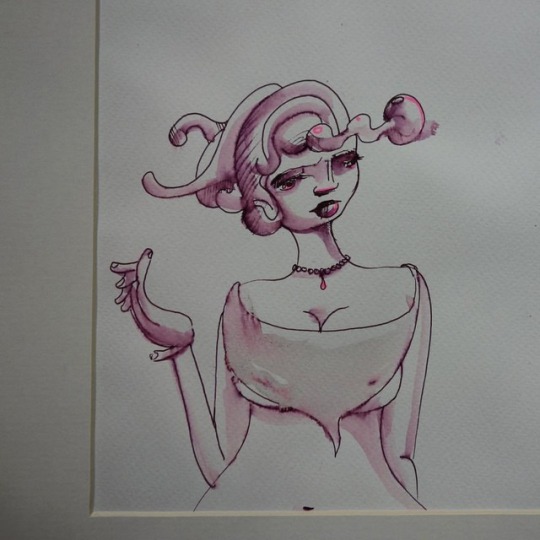
"Summer Breeze" Ink and gouache on arches paper. Showing tonight in Brooklyn to benefit "Rebuild Boriken". Repost @outlaw_arts #Repost from @crazylegsbx “Rebuild Borikén” Art Show fundraiser for Puerto Rico this Saturday Nov. 18!. Established curators have teamed up with our amazing arts community to raise money for PR - All art is on sale for one day only! Shouts to all the artists for their generous donations ✨ . . ARTISTS: Nick Walker, Al "SAMO" Diaz, René Soto, Kenny Rodriguez, Joe Conzo, UR New York, Chris RWK, Ernesto Gonzalez, Savior Elmundo, Sen2, See One, Bianca Romero, Danielle Mastrion, FUMERO, Laurie Mankiewicz, N Carlos J, CERN, Esteban del Valle, Voxx Romana, Misha Tyutyunik, Charles Doves, Cey Adams, Ralph Serrano, Alice Mizrachi, Ricky Powell, Alfredo Martinez, Nemo, Amy Cinnamon, Marthalicia Matarrita, Lexi Bella, Judy Mauer, J.T. Liss, Abe Lincoln Jr, Danny Hastings, Zimad, Erika Dickstein, Tommy the Animator, Rammer, Kas, Jeff Henriquez, Angie LM Vasquez, Elysabet Boniche, Sara Erenthal, Love MKM, Vanezza Cruz, Allison Ruiz, Joe Russo, Daniel Seth Pagel, Consumer Art, Pesu, Danielle De Jesus, Ribs, Danny Alago, Ridwan Adhami, Orlando Arocena, Spacecraft, Rush Humphrey, Yazmeen Collazo, Chris Smith, Tony Montalvo, Kevin Santos, Oliver Rios, Josh Goldstein, Lou Pimental, Alexandra Pandolas, Albertus Joseph, Ariana Febles, Juan Carlos Pinto, Adam Suerte, Linda Cheung, Dylon Thomas Burns, JPO, Fausto Ramos, Luis Perez, Sienide, Jimmy Aponte, AJ Lavilla, Geanette Tywang, Dee Razo, Chris Soria, Andre Trenier, Ambi67, George Torres, Boogie Rez. . . MUSIC BY: @djdpone , @djtahleim , @ready_ron. . . CHARITY: 100% of all funds raised will be donated to @rocksteadyforlife , Rock Steady Crew's organization to help Puerto Rico. . . CURATORS: Robert Aloia, Frankie Cedeño @outlaw_arts , Frankie Velez @artface7 , Savior El Mundo @saviorelmundo , Danny Castro @dcashflow74 , Bianca Romero @skillosophy . . Sponsors Flaco Coquito and Wild Hibiscus Flowers.. . Classic Material NY will be dropping an exclusive snapback
0 notes
Photo

The art community is really stepping up. Honored to be part of another great event with an insane line up of talent willing to donate their time and artwork to help out Puerto Rico. #artforchange • • ARTISTS: Nick Walker, Al "SAMO" Diaz, René Soto, Kenny Rodriguez, Joe Conzo, UR New York, Chris RWK, Ernesto Gonzalez, Savior Elmundo, Sen2, See One, Bianca Romero, Danielle Mastrion, FUMERO, Laurie Mankiewicz, N Carlos J, CERN, Esteban del Valle, Voxx Romana, Misha Tyutyunik, Charles Doves, Cey Adams, Ralph Serrano, Alice Mizrachi, Ricky Powell, Alfredo Martinez, Nemo, Amy Cinnamon, Marthalicia Matarrita, Lexi Bella, Judy Mauer, J.T. Liss, Abe Lincoln Jr, Danny Hastings, Zimad, Erika Dickstein, Tommy the Animator, Rammer, Kas, Jeff Henriquez, Angie LM Vasquez, Elysabet Boniche, Sara Erenthal, Love MKM, Vanezza Cruz, Allison Ruiz, Joe Russo, Daniel Seth Pagel, Consumer Art, Pesu, Danielle De Jesus, Ribs, Danny Alago, Ridwan Adhami, Orlando Arocena, Spacecraft, Rush Humphrey, Yazmeen Collazo, Chris Smith, Tony Montalvo, Kevin Santos, Oliver Rios, Josh Goldstein, Lou Pimental, Alexandra Pandolas, Albertus Joseph, Ariana Febles, Juan Carlos Pinto, Adam Suerte, Linda Cheung, Dylon Thomas Burns, JPO, Fausto Ramos, Luis Perez, Sienide, Jimmy Aponte, AJ Lavilla, Geanette Tywang, Dee Razo, Chris Soria, Andre Trenier, Ambi67, George Torres, Boogie Rez. . . MUSIC BY: @djdpone , @djtahleim , @ready_ron. . . CHARITY: 100% of all funds raised will be donated to @rocksteadyforlife , Rock Steady Crew's organization to help Puerto Rico. . CURATORS: Robert Aloia, Frankie Cedeño @outlaw_arts , Frankie Velez @artface7 , Savior El Mundo @saviorelmundo , Danny Castro @dcashflow74 , Bianca Romero @skillosophy . . Sponsors Flaco Coquito and Wild Hibiscus Flowers.. . Classic Material NY will be dropping an exclusive snapback .
0 notes
Photo

I’m honored to donate a piece to a new benefit for #puertorico thanks for asking me @artface7 #Repost @biadoesnyc (@get_repost) ・・・ So excited to announce all the details for our “Rebuild Borikén” Art Show fundraiser for Puerto Rico this Saturday Nov. 18!. Established curators have teamed up with our amazing arts community to raise money for PR - All art is on sale for one day only! Shouts to all the artists for their generous donations ✨ . . ARTISTS: Nick Walker, Al "SAMO" Diaz, René Soto, Kenny Rodriguez, Joe Conzo, UR New York, Chris RWK, Ernesto Gonzalez, Savior Elmundo, Sen2, See One, Bianca Romero, Danielle Mastrion, FUMERO, Laurie Mankiewicz, N Carlos J, CERN, Esteban del Valle, Voxx Romana, Misha Tyutyunik, Charles Doves, Cey Adams, Ralph Serrano, Alice Mizrachi, Ricky Powell, Alfredo Martinez, Nemo, Amy Cinnamon, Marthalicia Matarrita, Lexi Bella, Judy Mauer, J.T. Liss, Abe Lincoln Jr, Danny Hastings, Zimad, Erika Dickstein, Tommy the Animator, Rammer, Kas, Jeff Henriquez, Angie LM Vasquez, Elysabet Boniche, Sara Erenthal, Love MKM, Vanezza Cruz, Allison Ruiz, Joe Russo, Daniel Seth Pagel, Consumer Art, Pesu, Danielle De Jesus, Ribs, Danny Alago, Ridwan Adhami, Orlando Arocena, Spacecraft, Rush Humphrey, Yazmeen Collazo, Chris Smith, Tony Montalvo, Kevin Santos, Oliver Rios, Josh Goldstein, Lou Pimental, Alexandra Pandolas, Albertus Joseph, Ariana Febles, Juan Carlos Pinto, Adam Suerte, Linda Cheung, Dylon Thomas Burns, JPO, Fausto Ramos, Luis Perez, Sienide, Jimmy Aponte, AJ Lavilla, Geanette Tywang, Dee Razo, Chris Soria, Andre Trenier, Ambi67, George Torres, Boogie Rez. . MUSIC BY: @djdpone , @djtahleim , @ready_ron. . CHARITY: 100% of all funds raised will be donated to @rocksteadyforlife , Rock Steady Crew's organization to help Puerto Rico. . . CURATORS: Robert Aloia, Frankie Cedeño @outlaw_arts , Frankie Velez @artface7 , Savior El Mundo @saviorelmundo , Danny Castro @dcashflow74 , Bianca Romero @skillosophy . . Sponsors Flaco Coquito and Wild Hibiscus Flowers..
0 notes